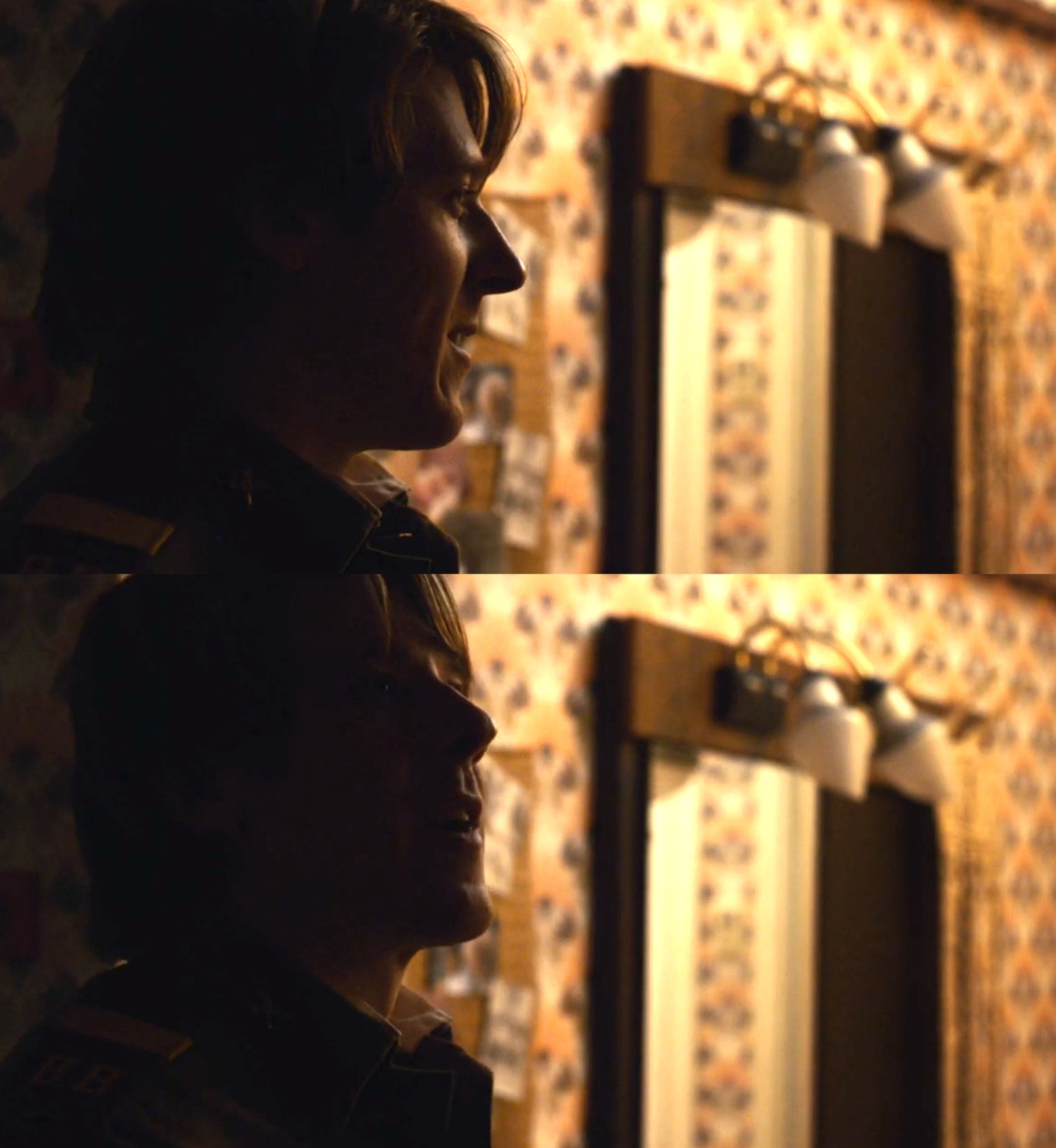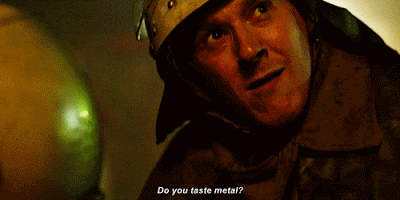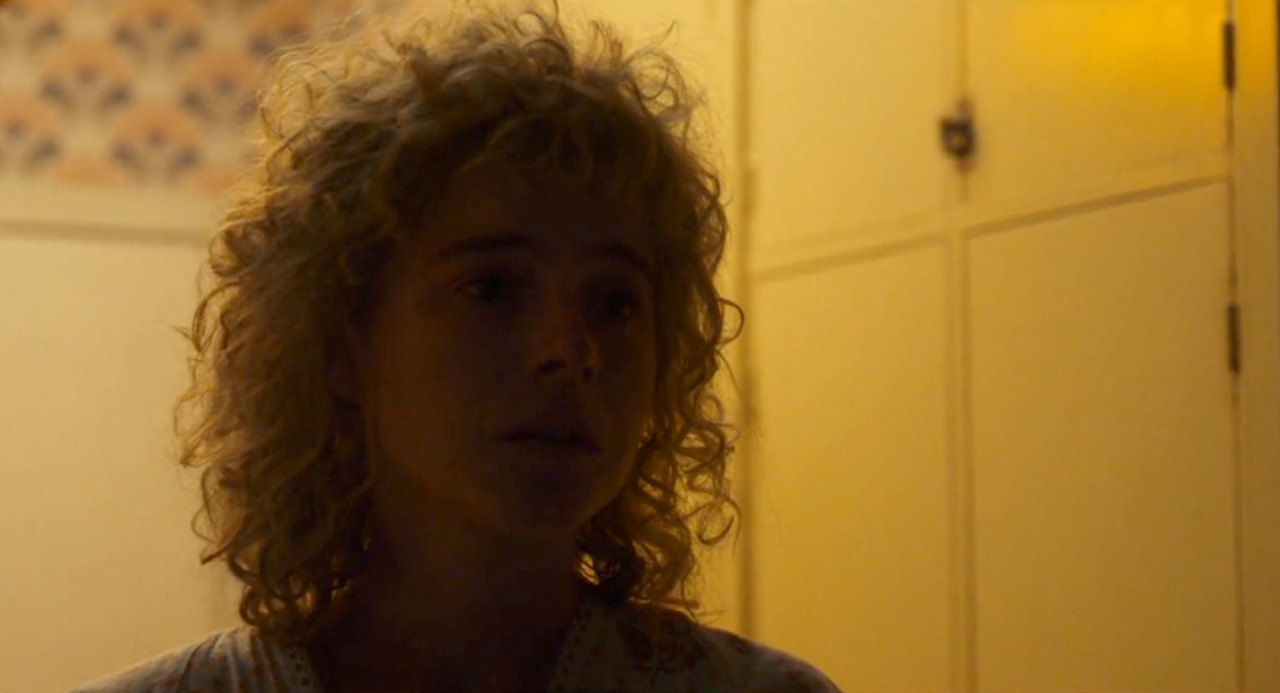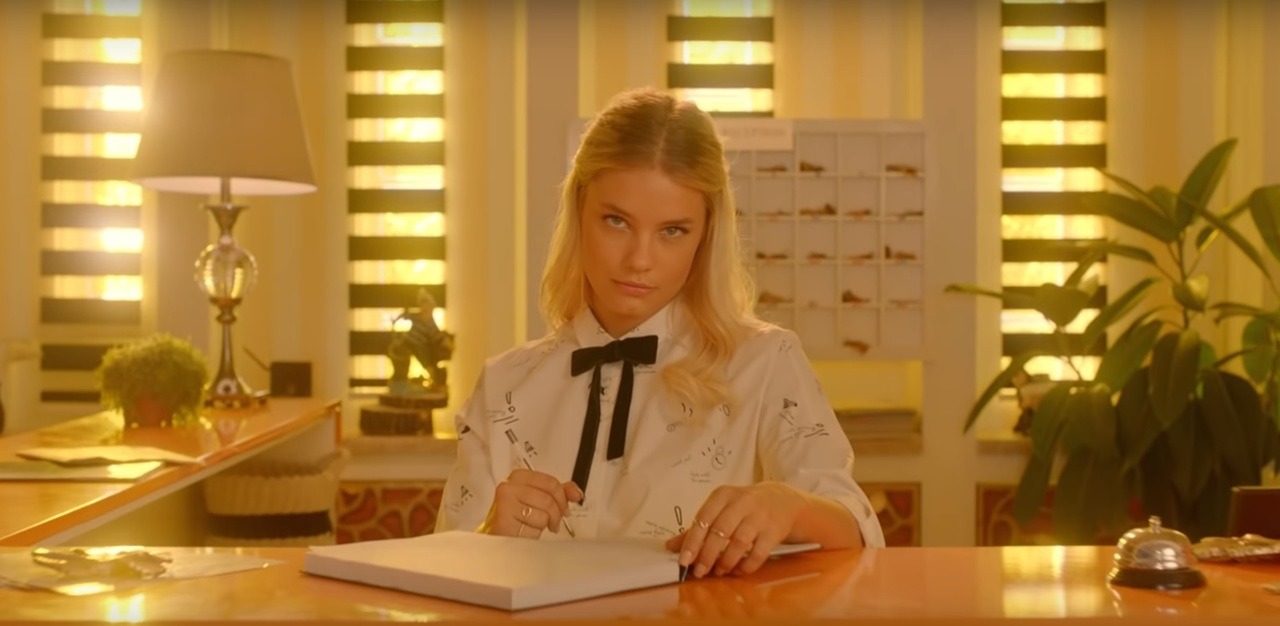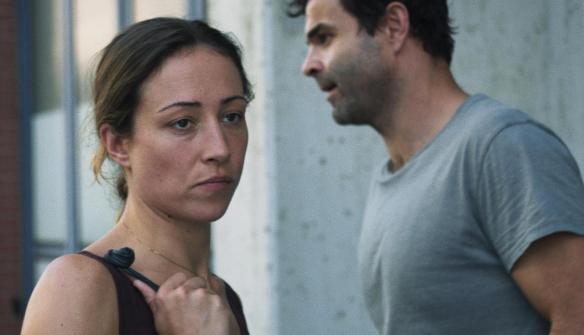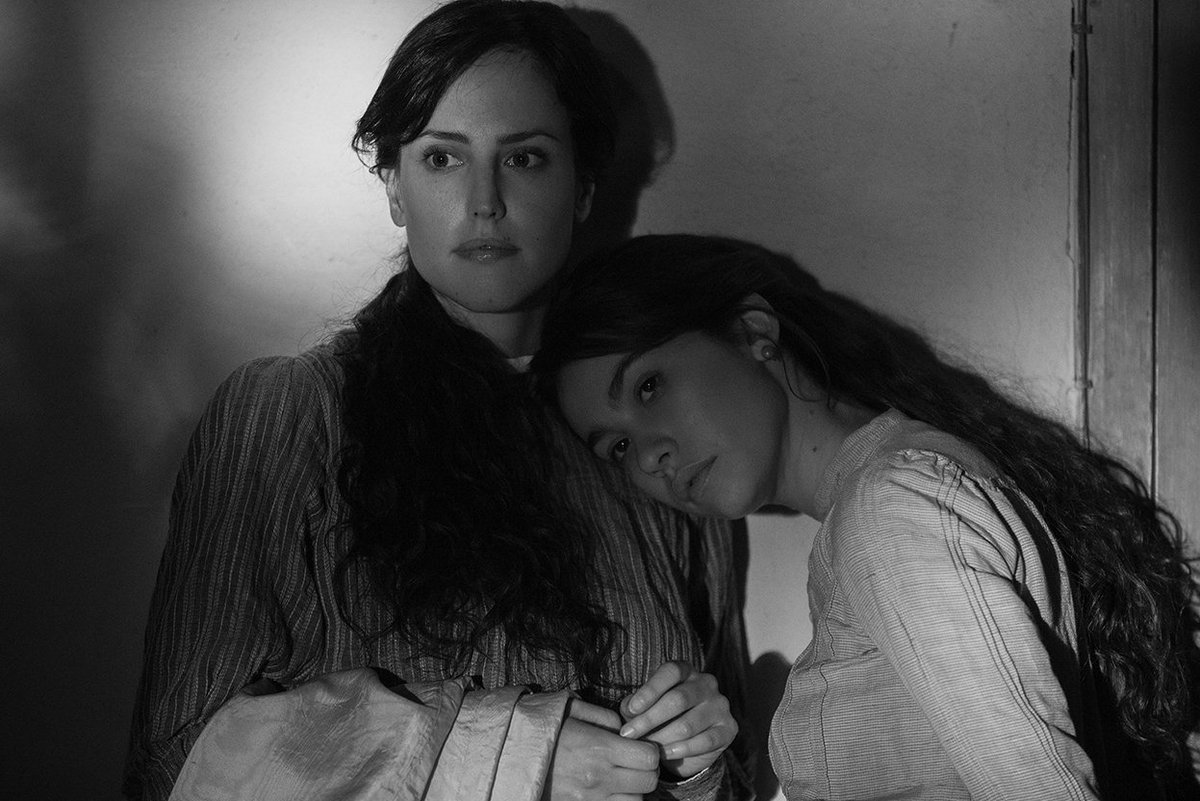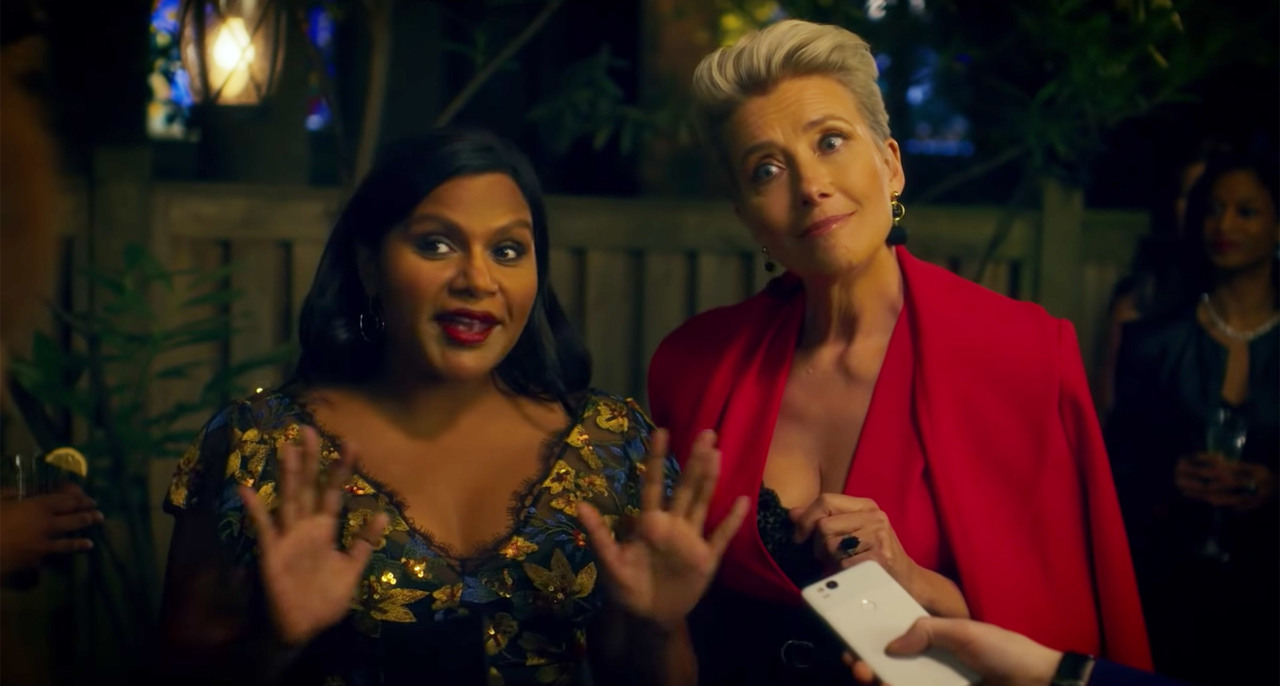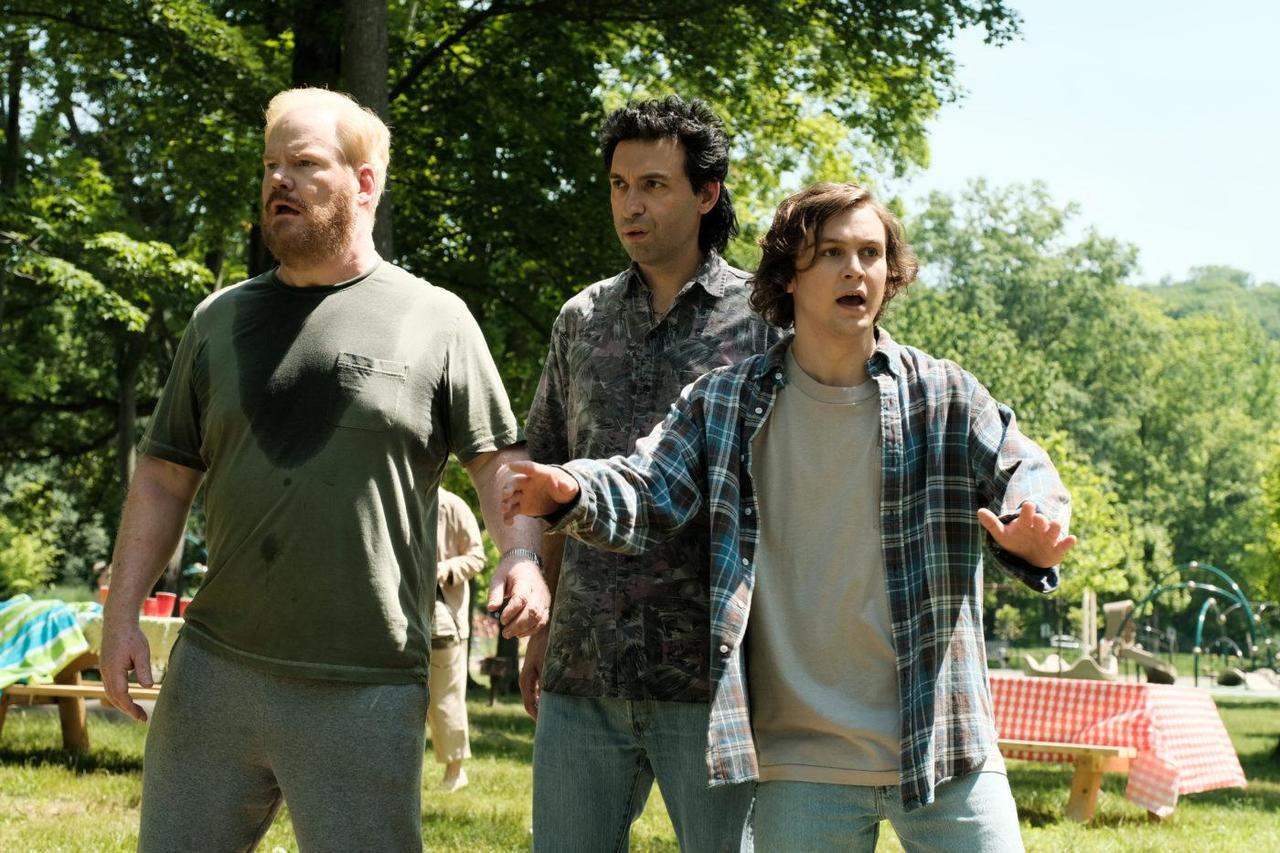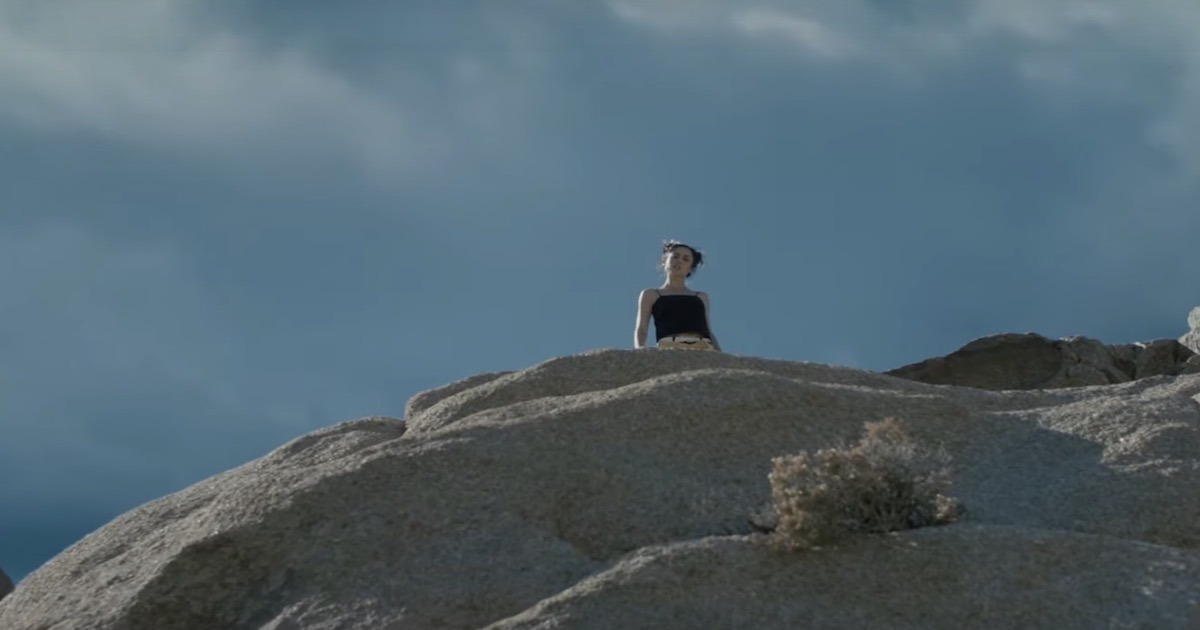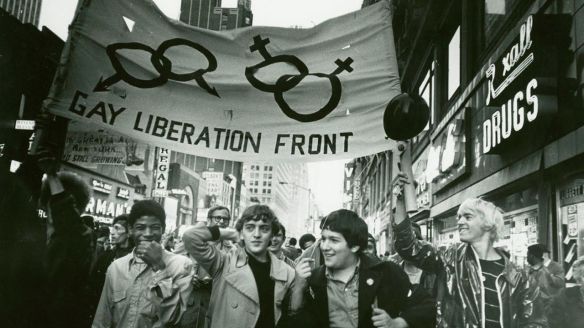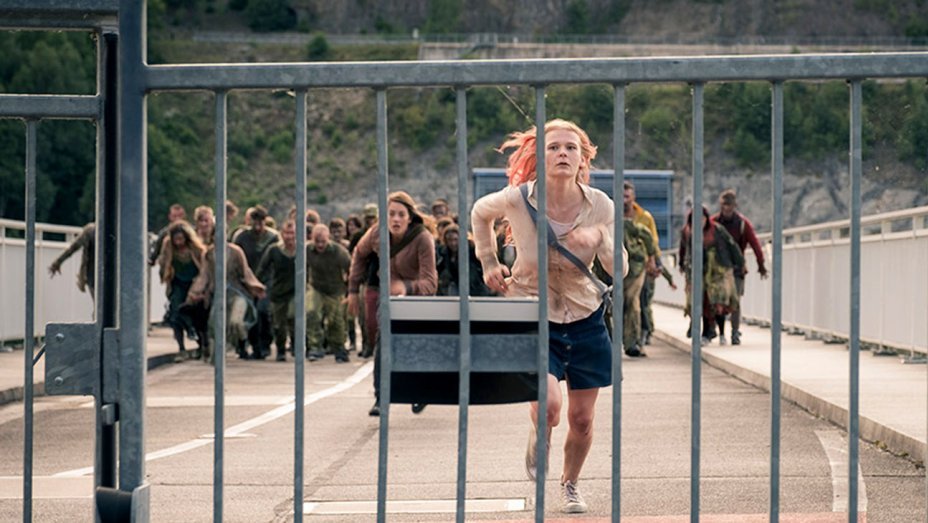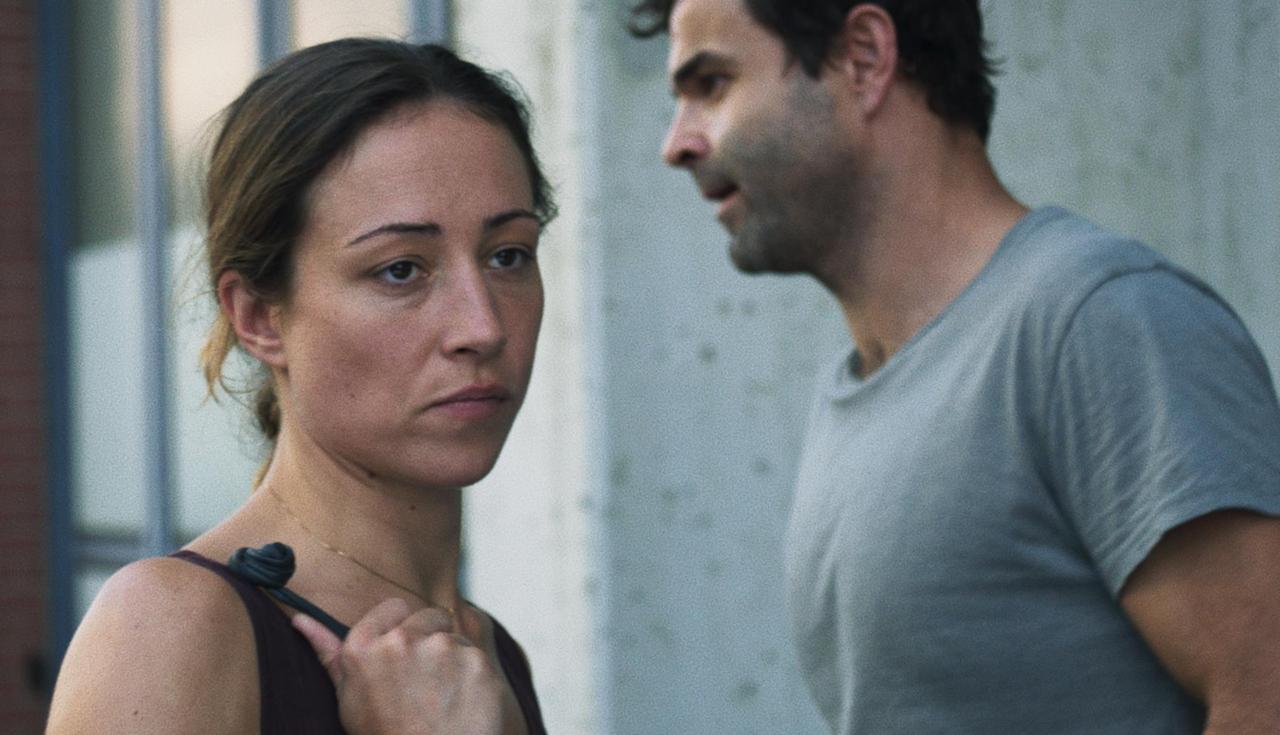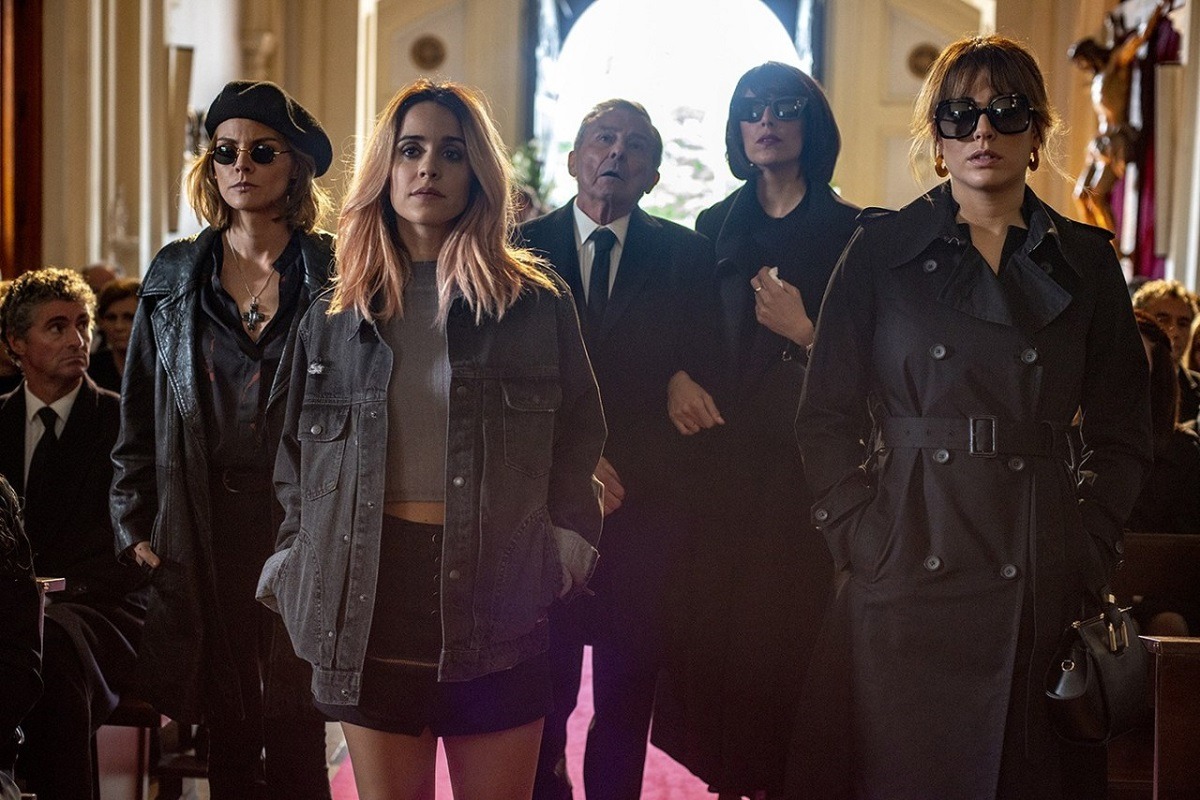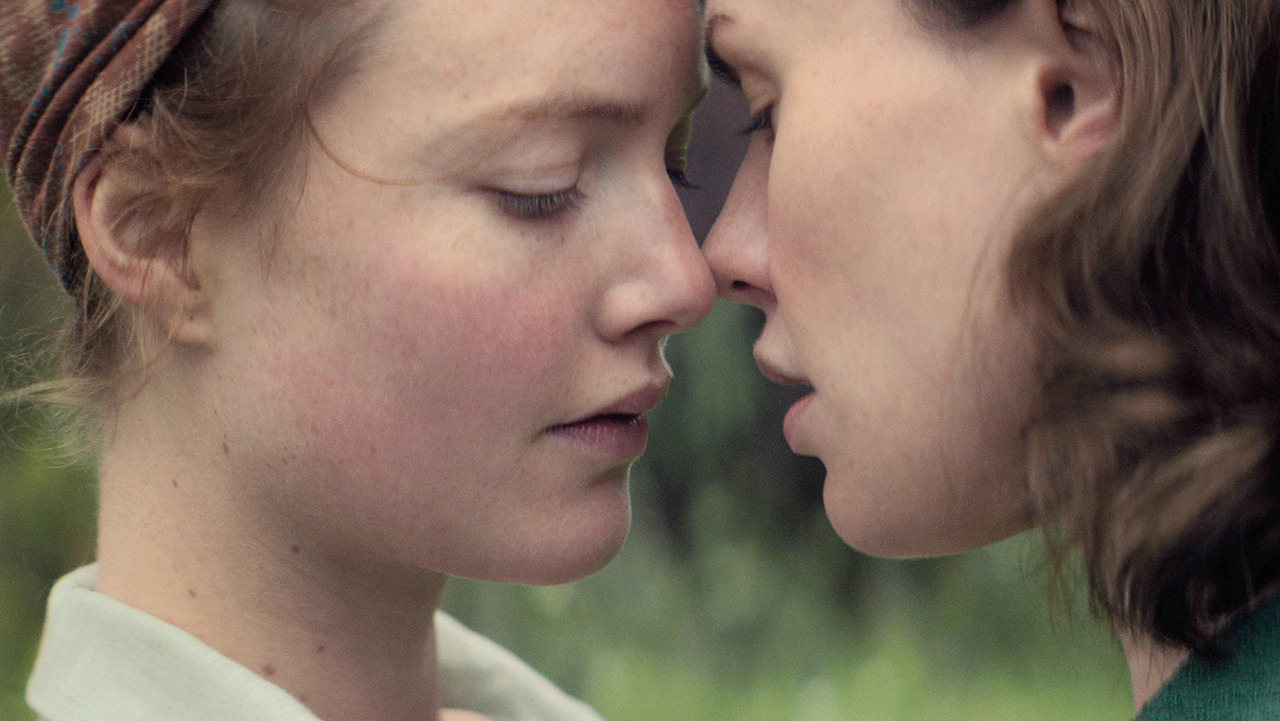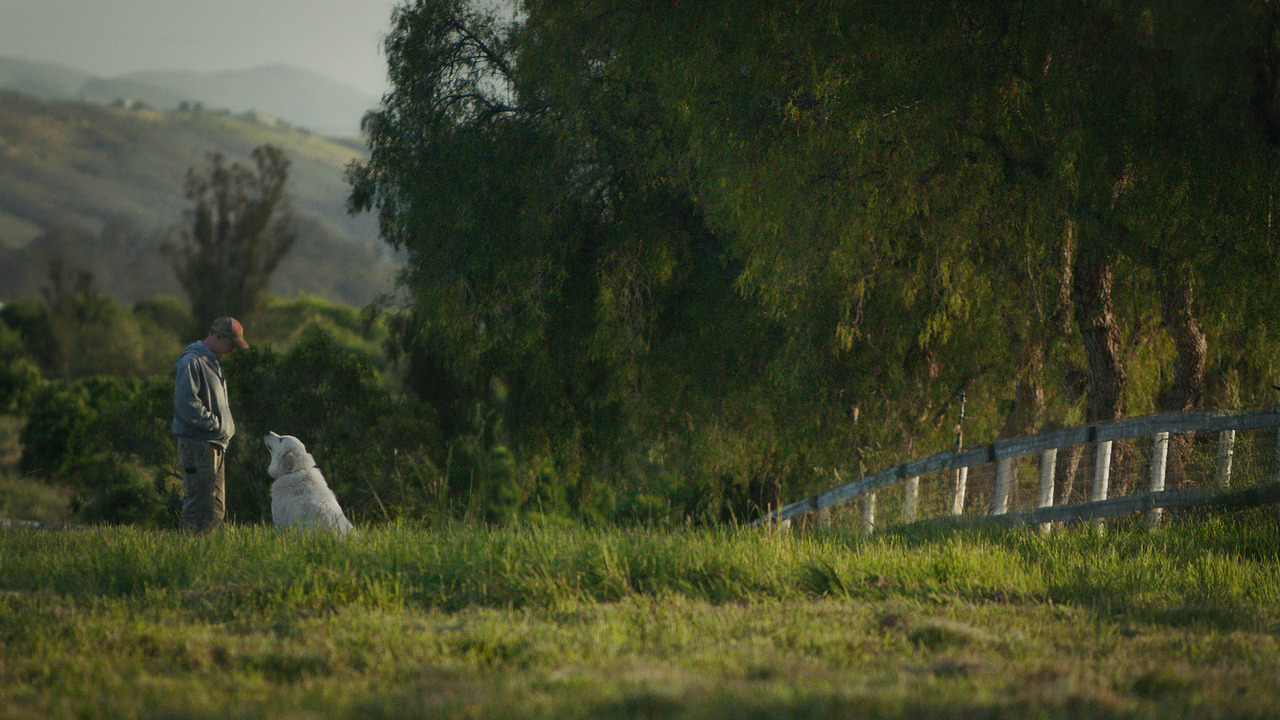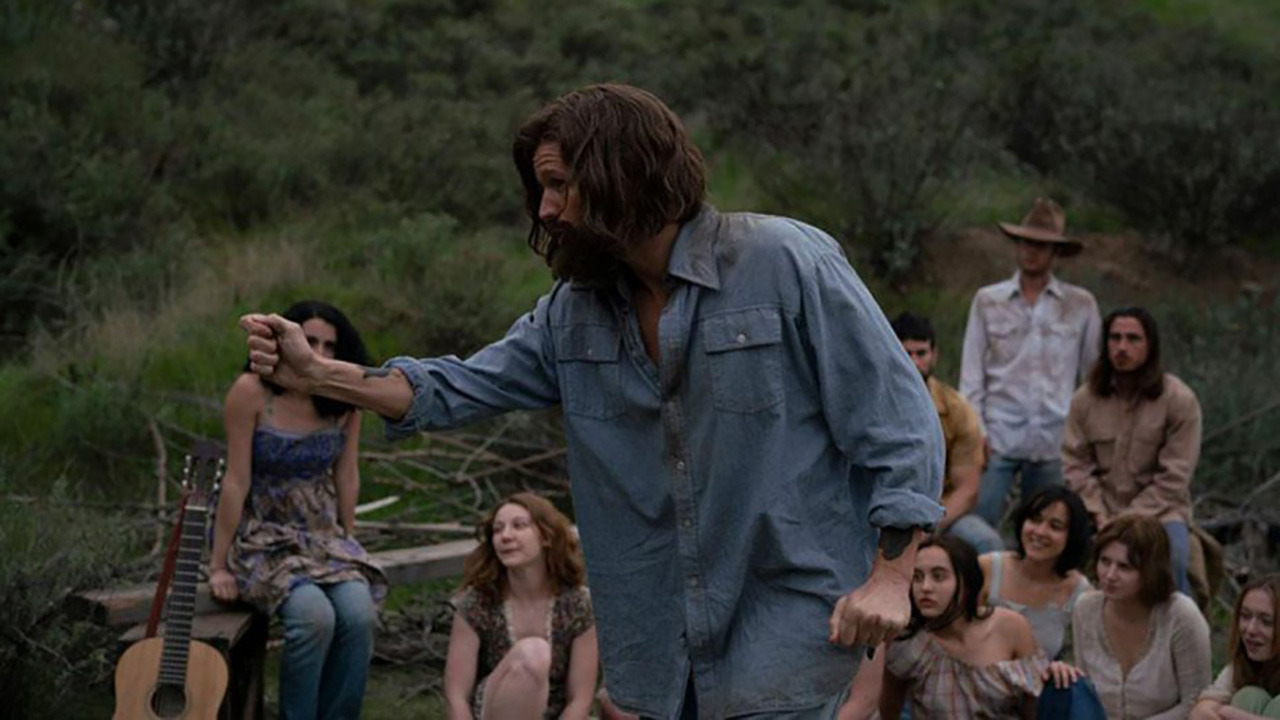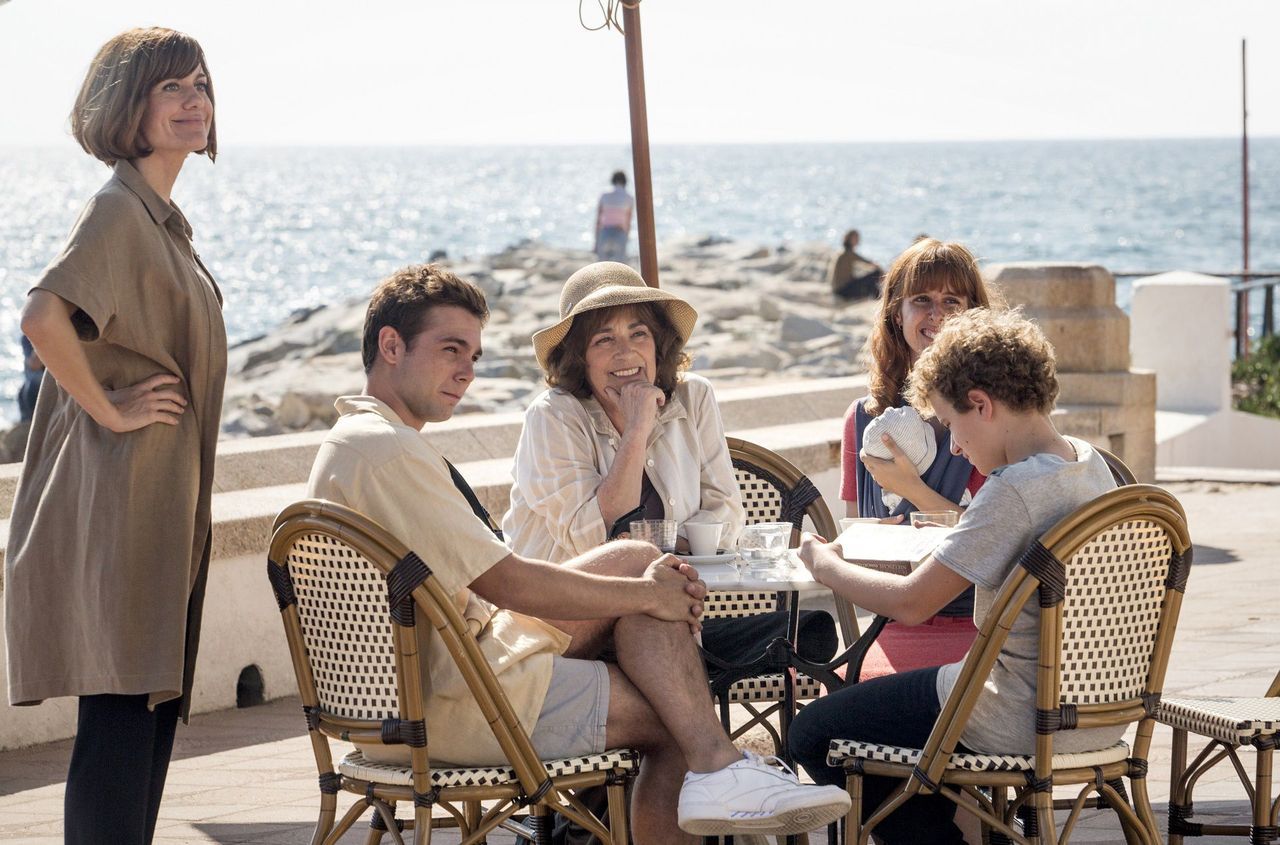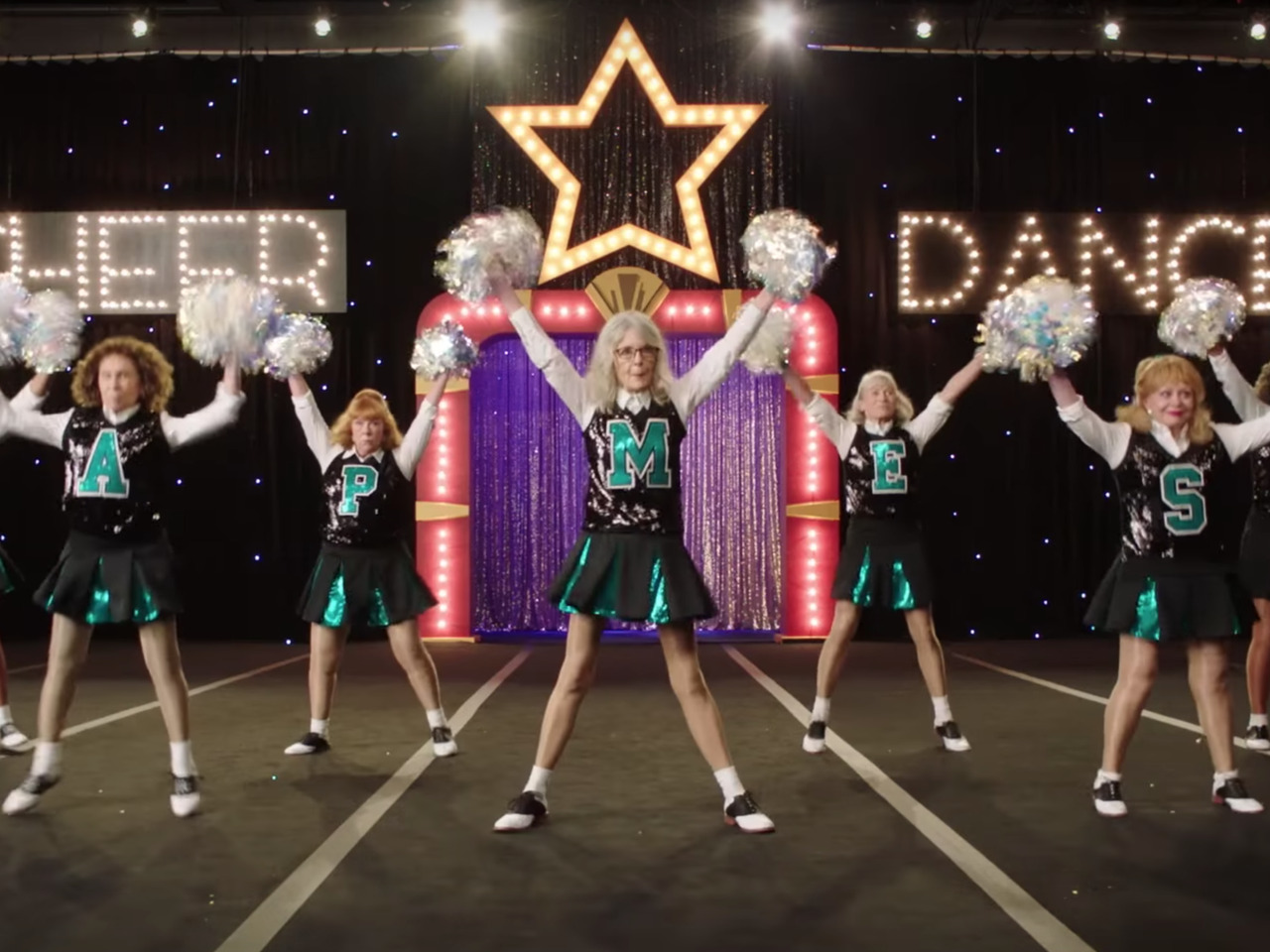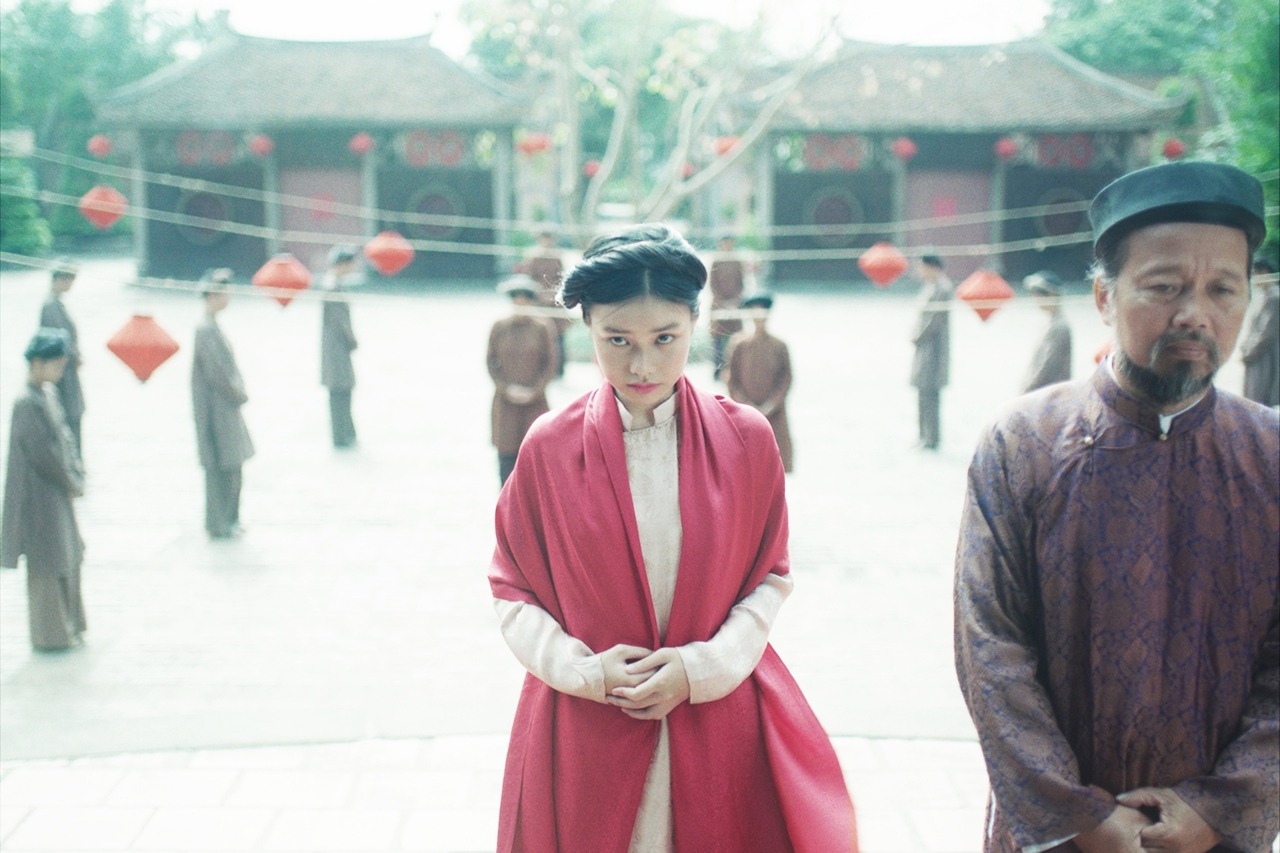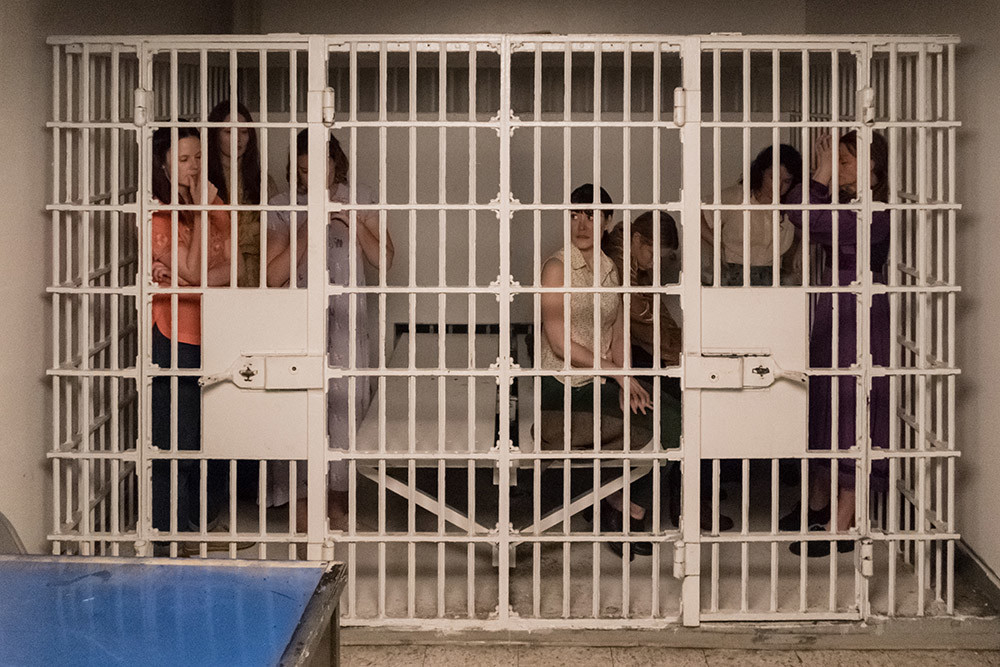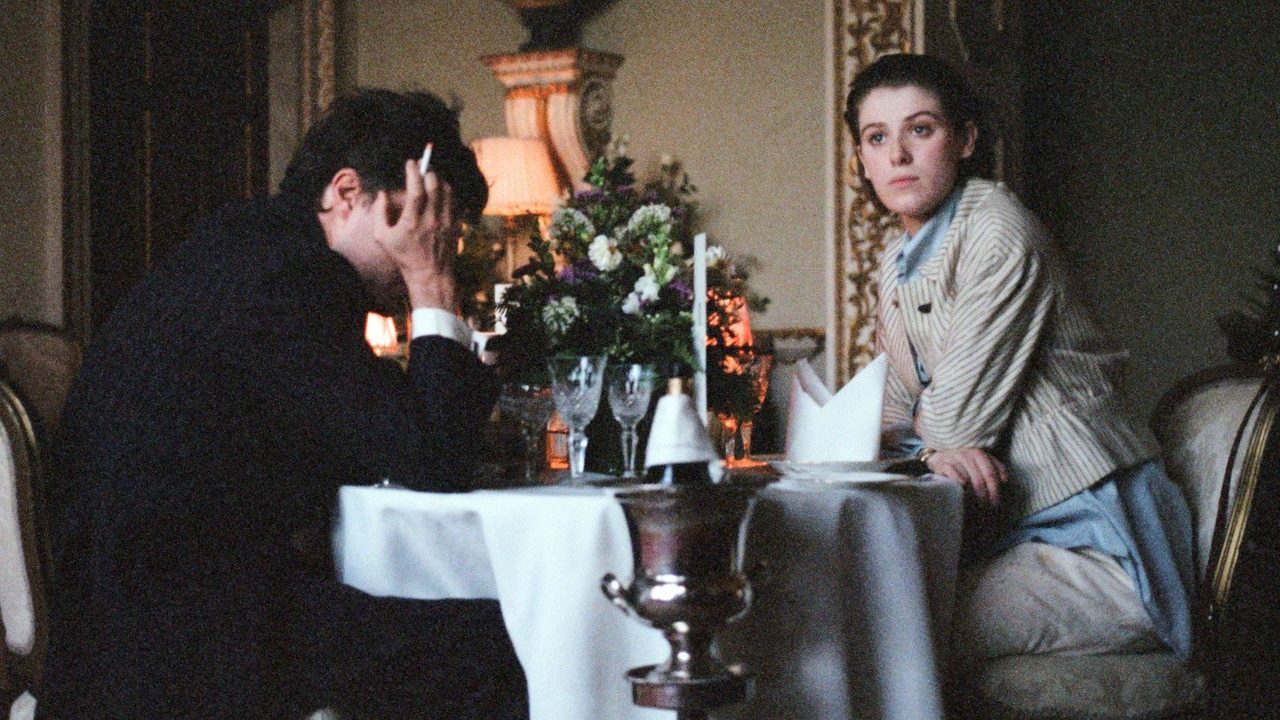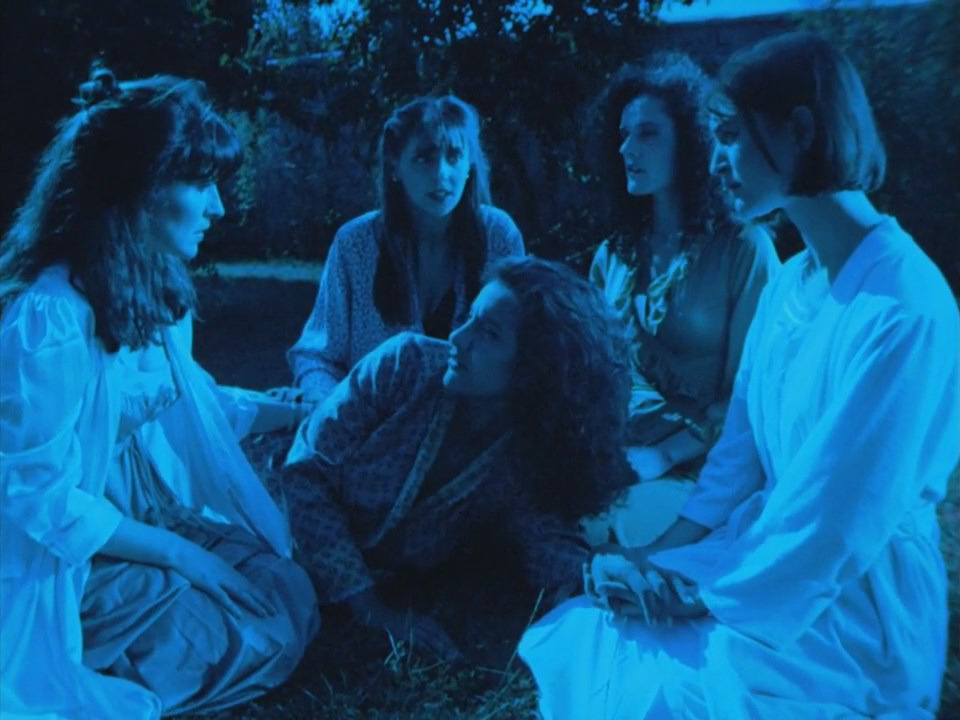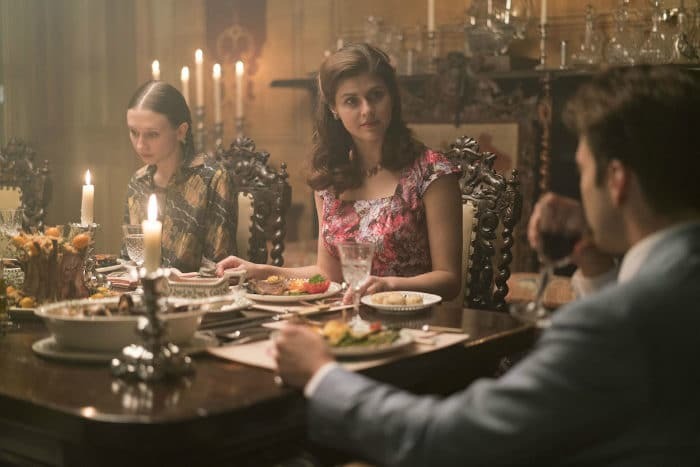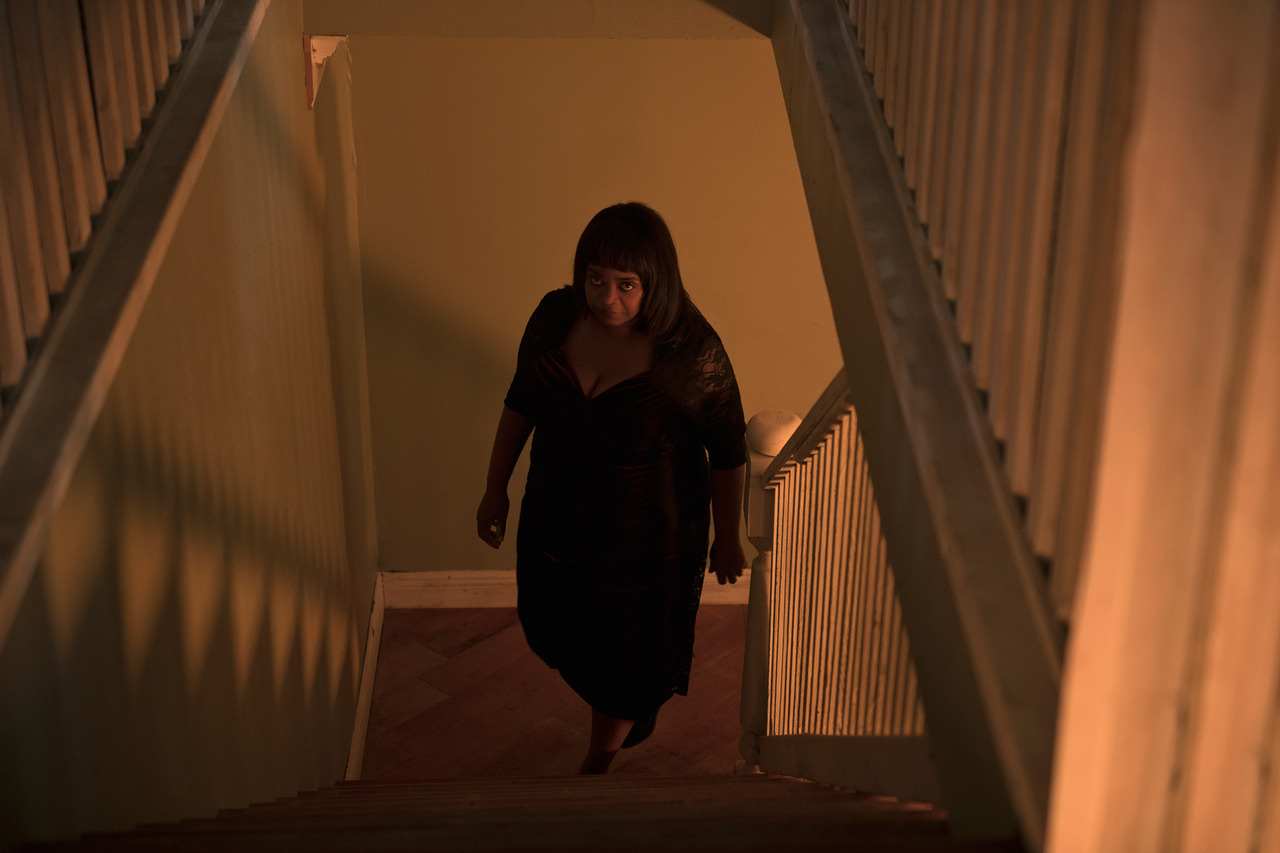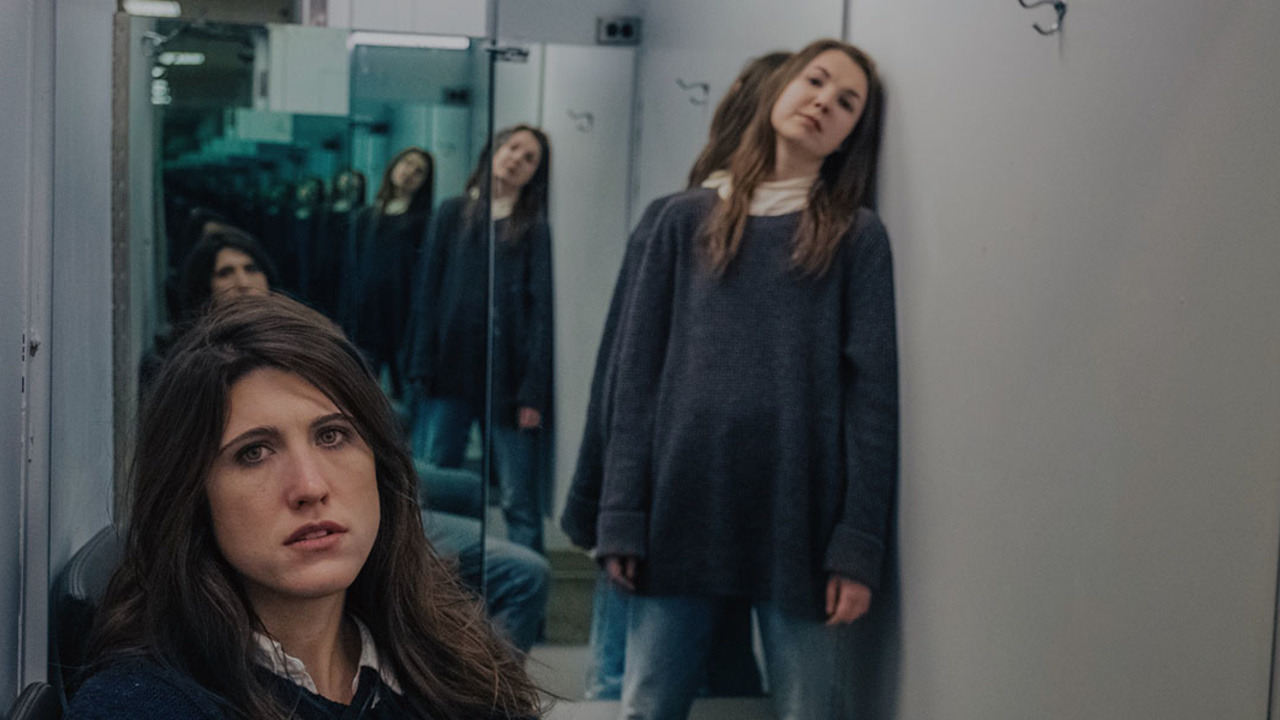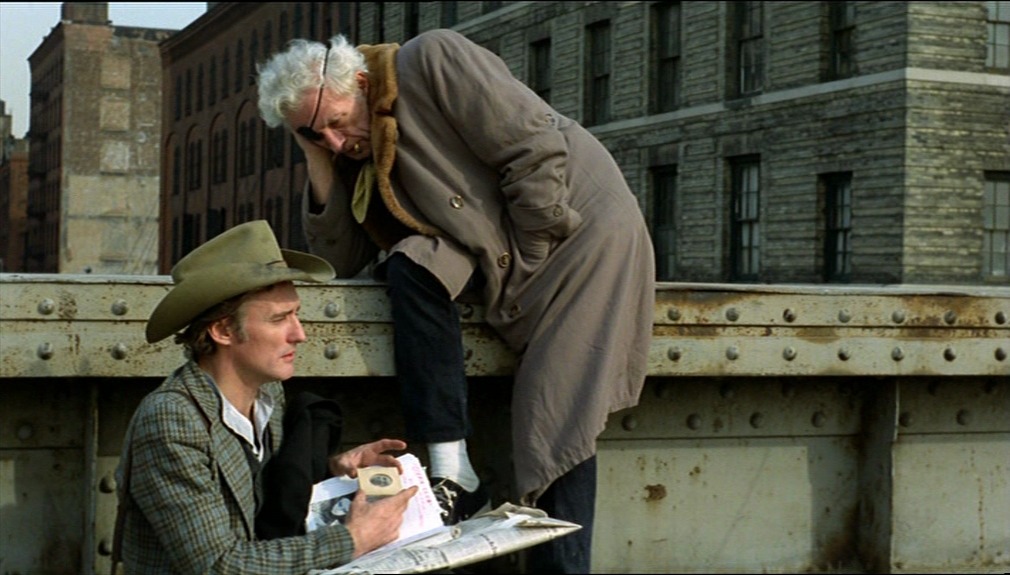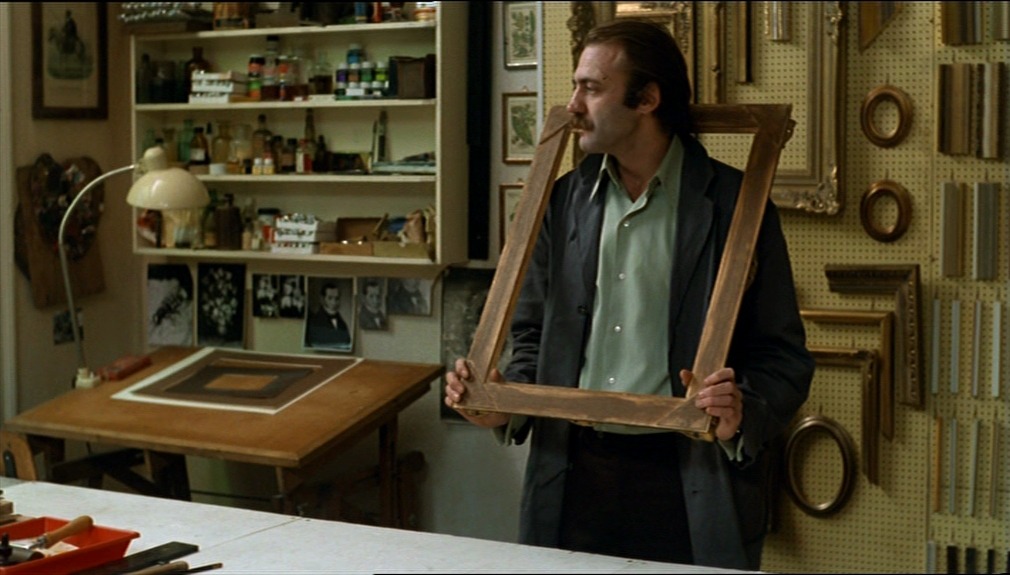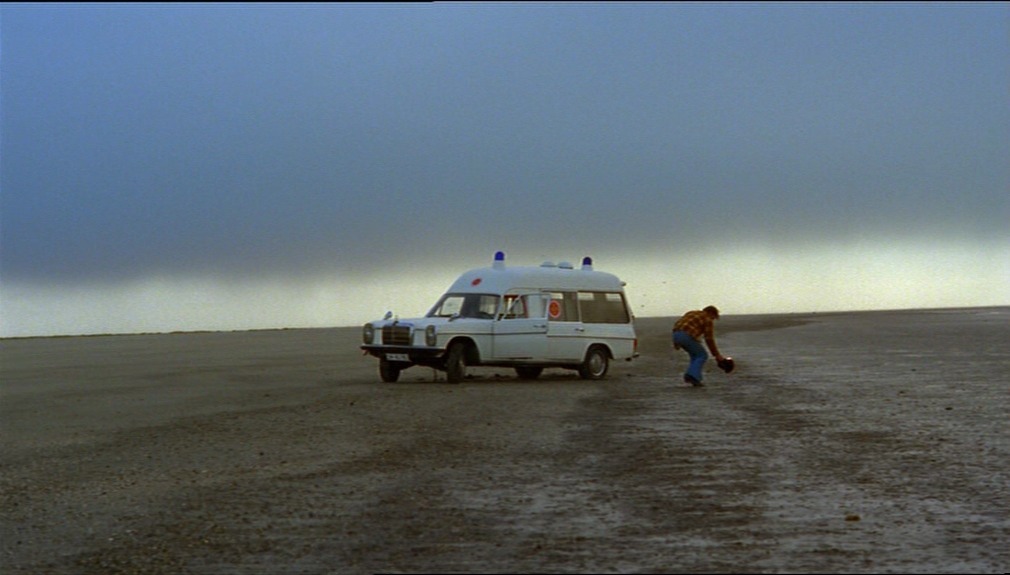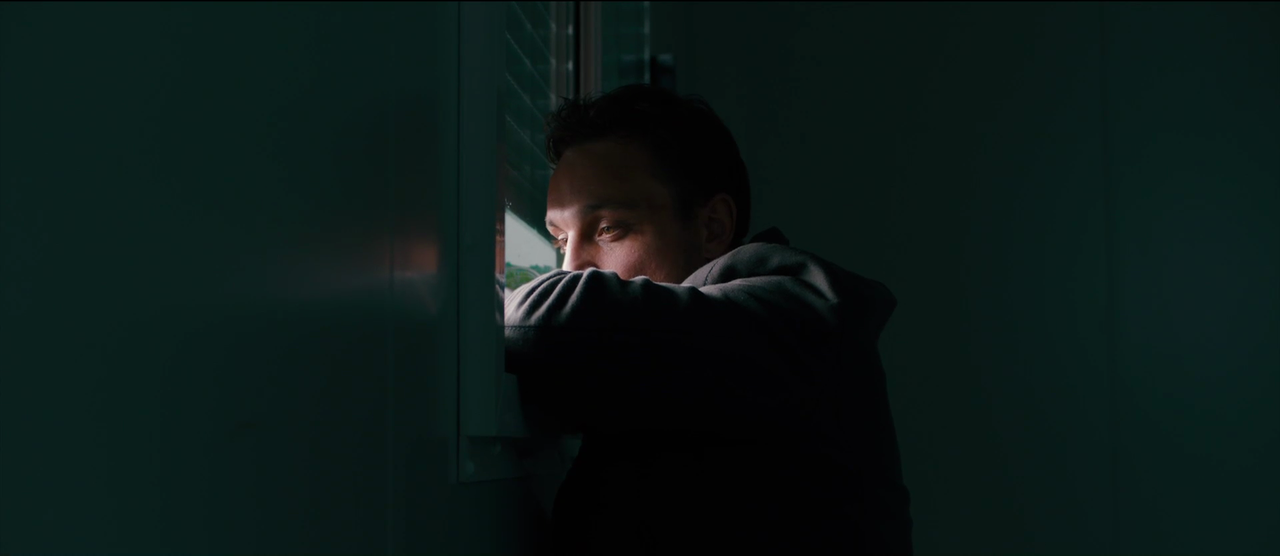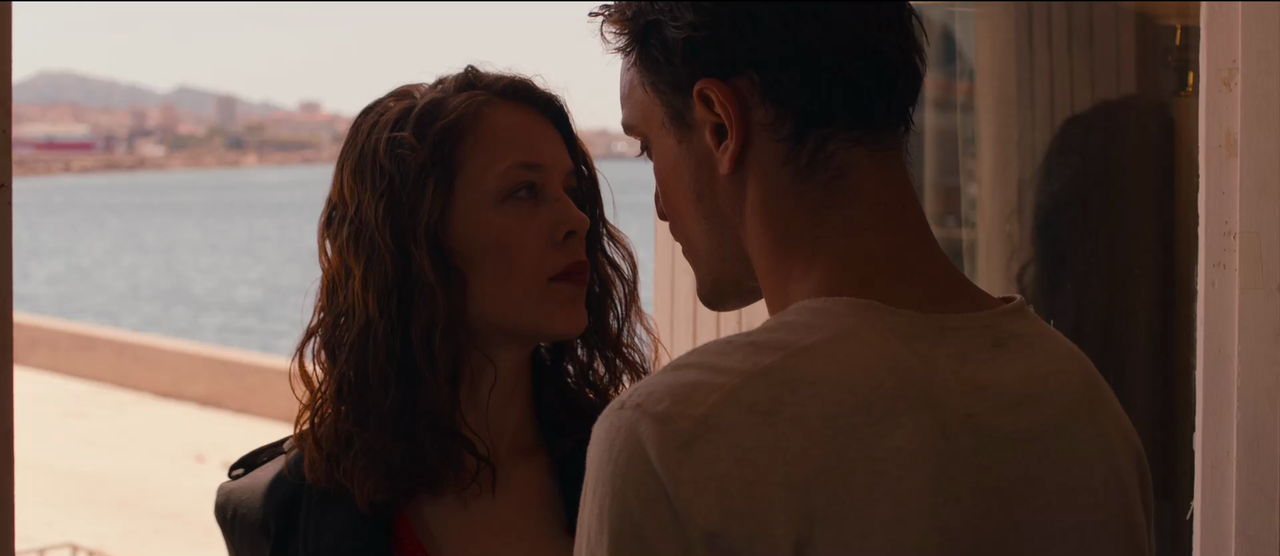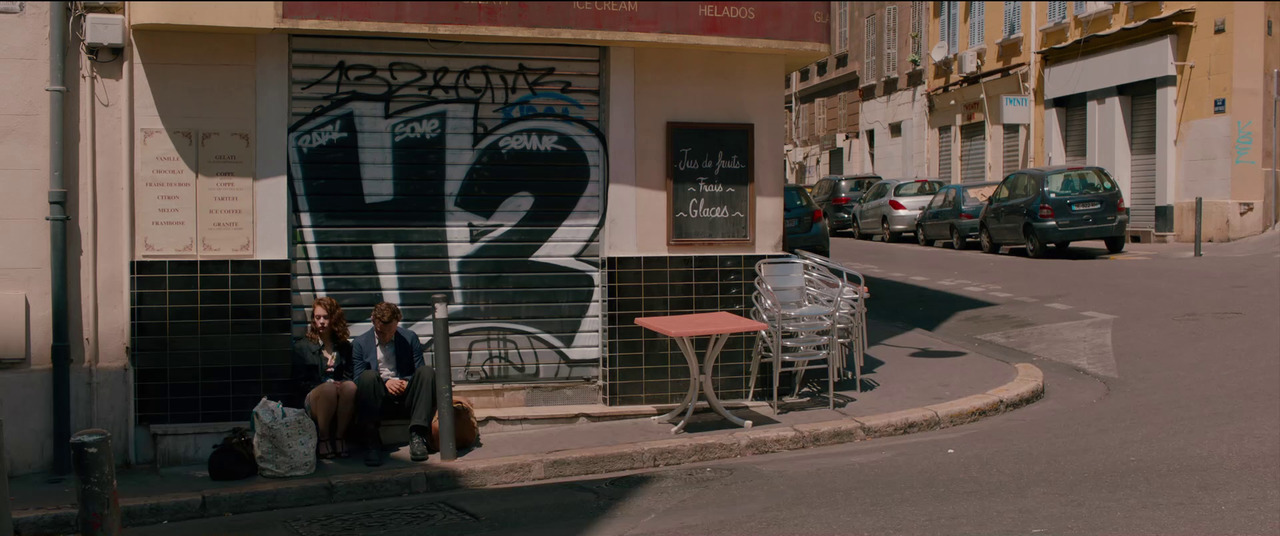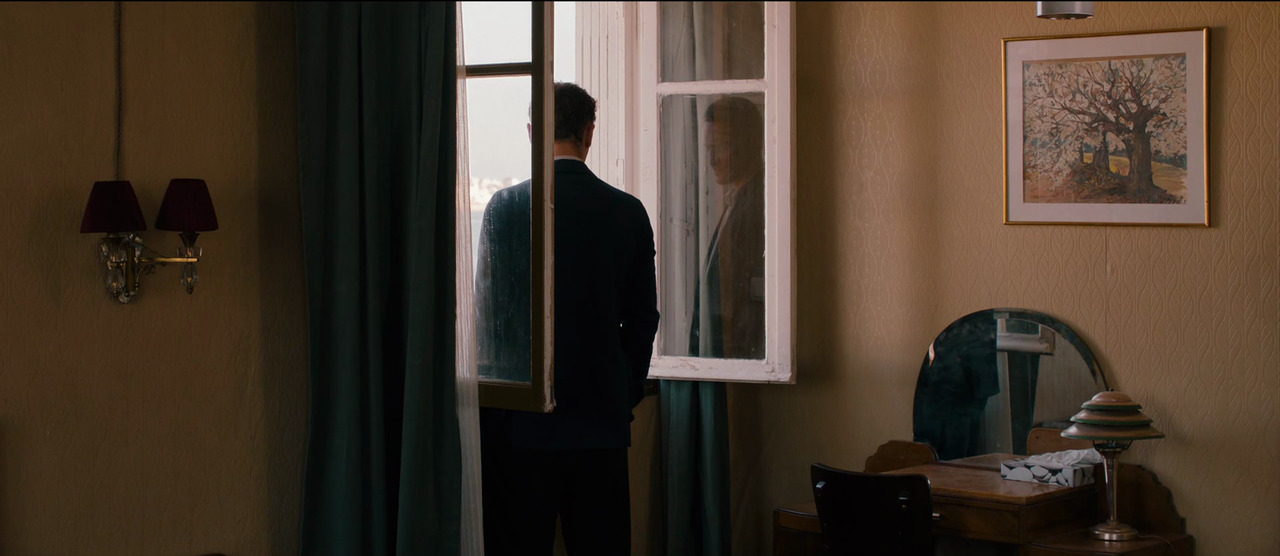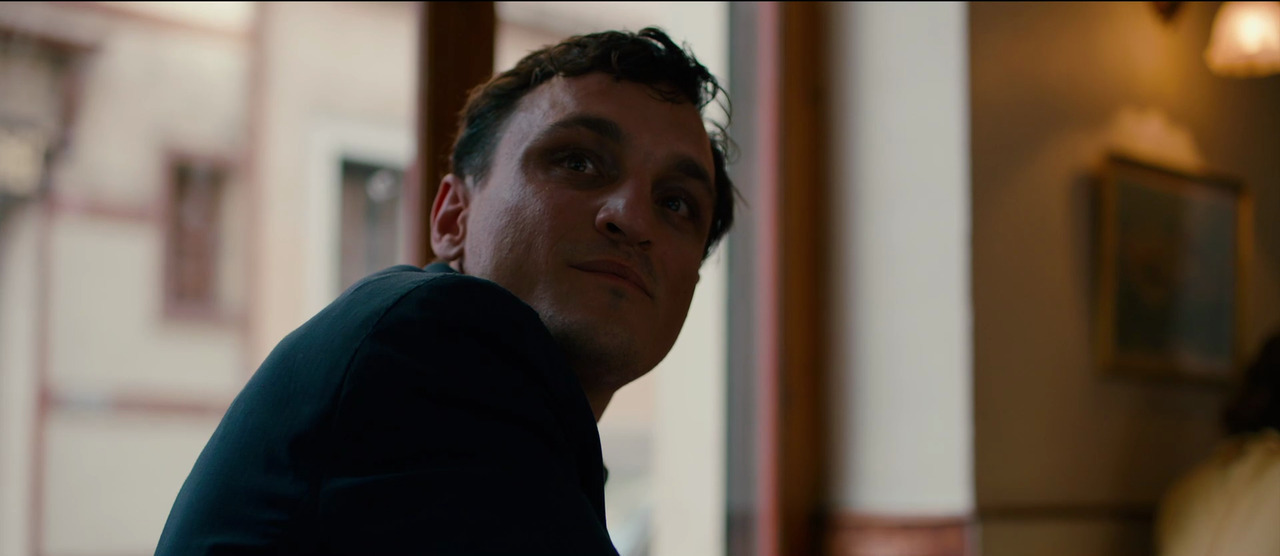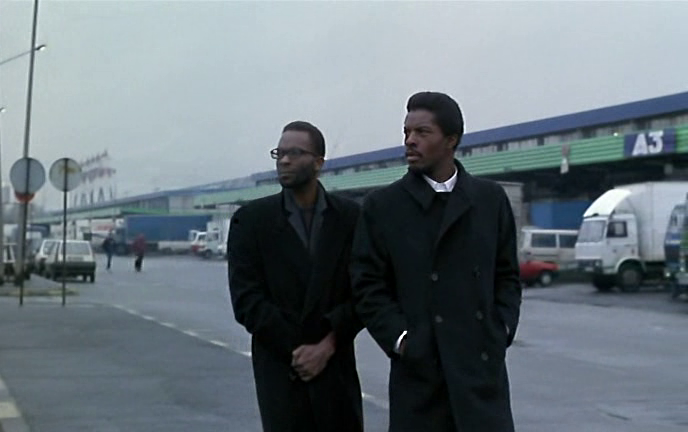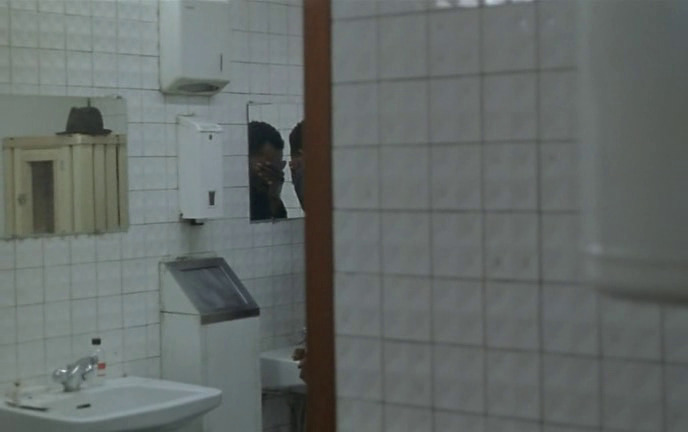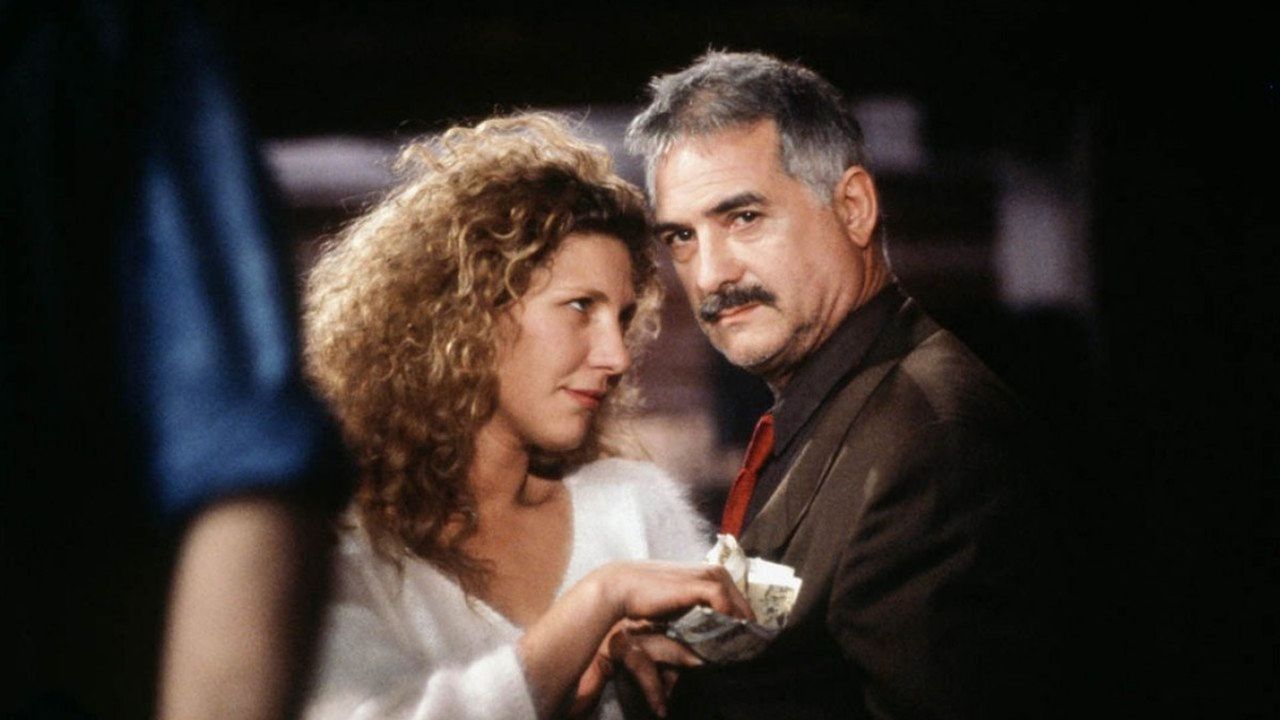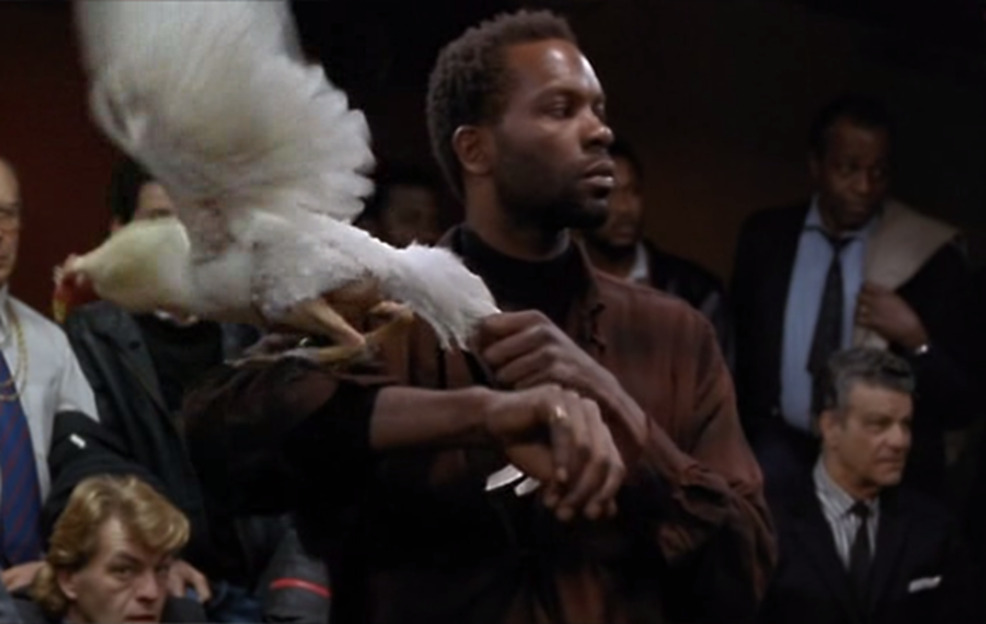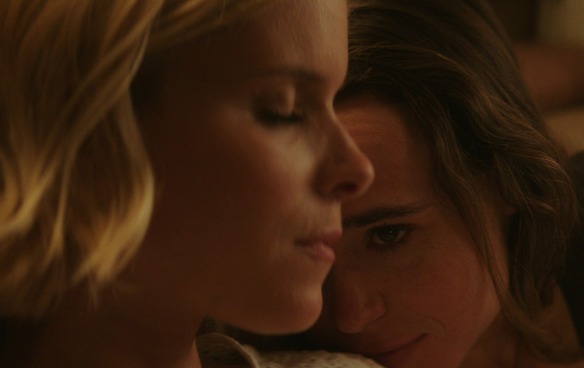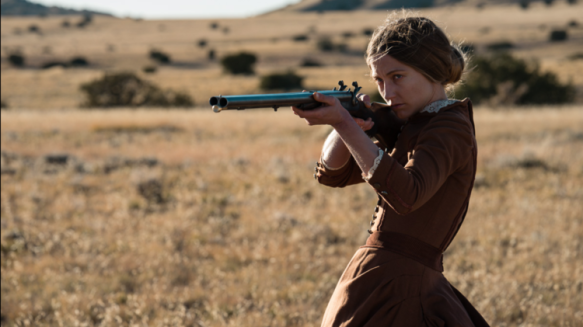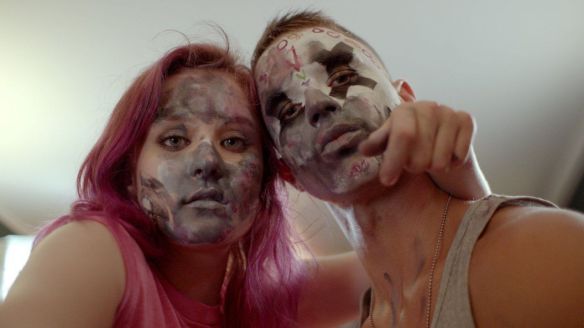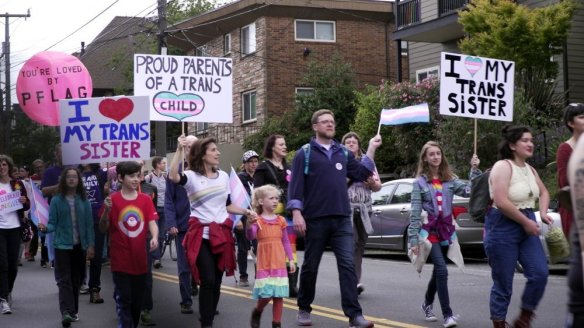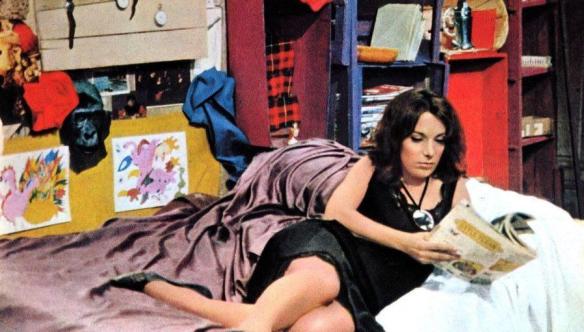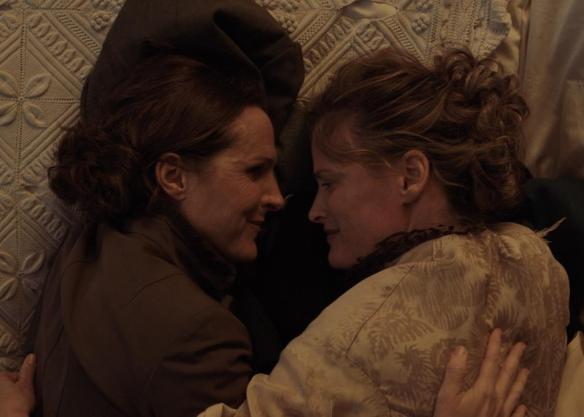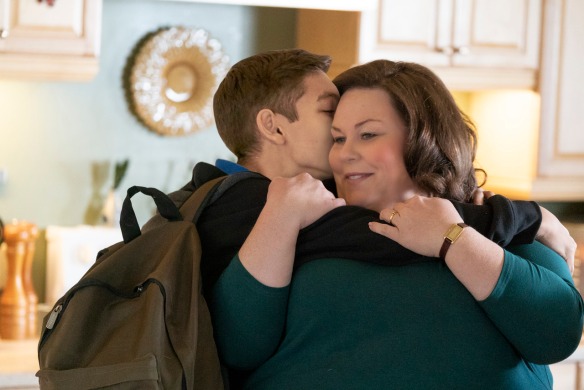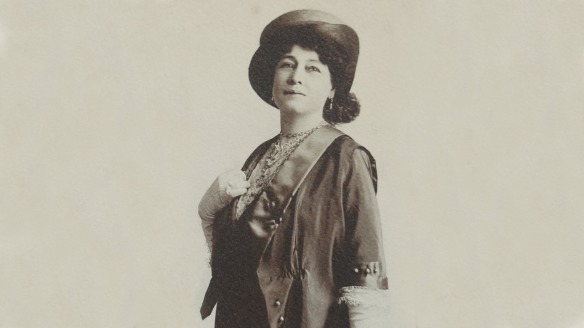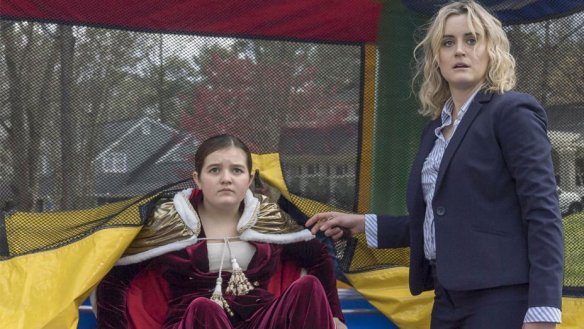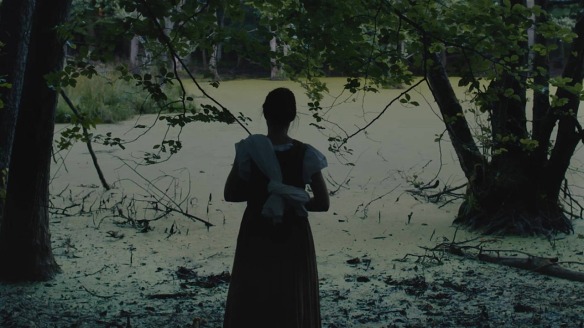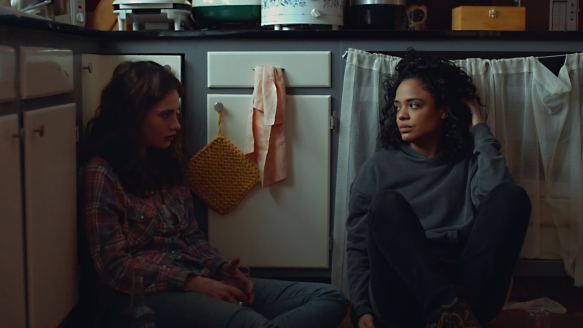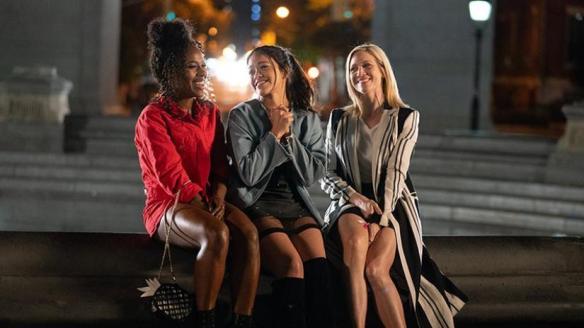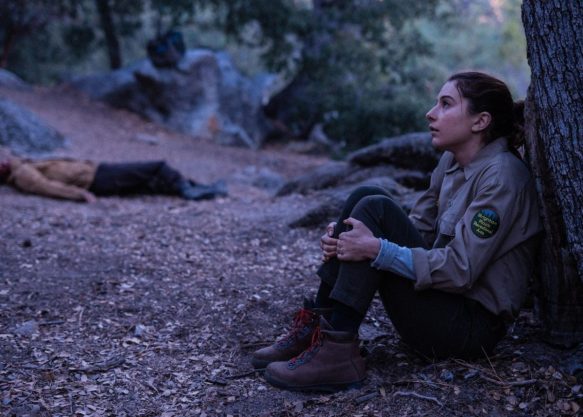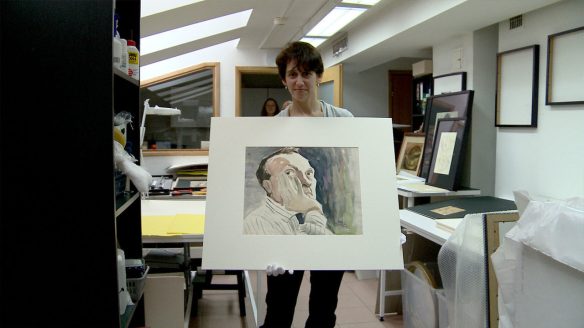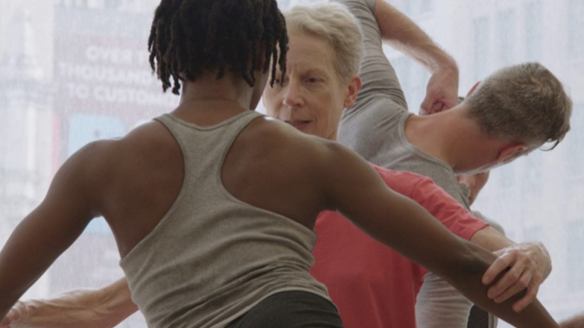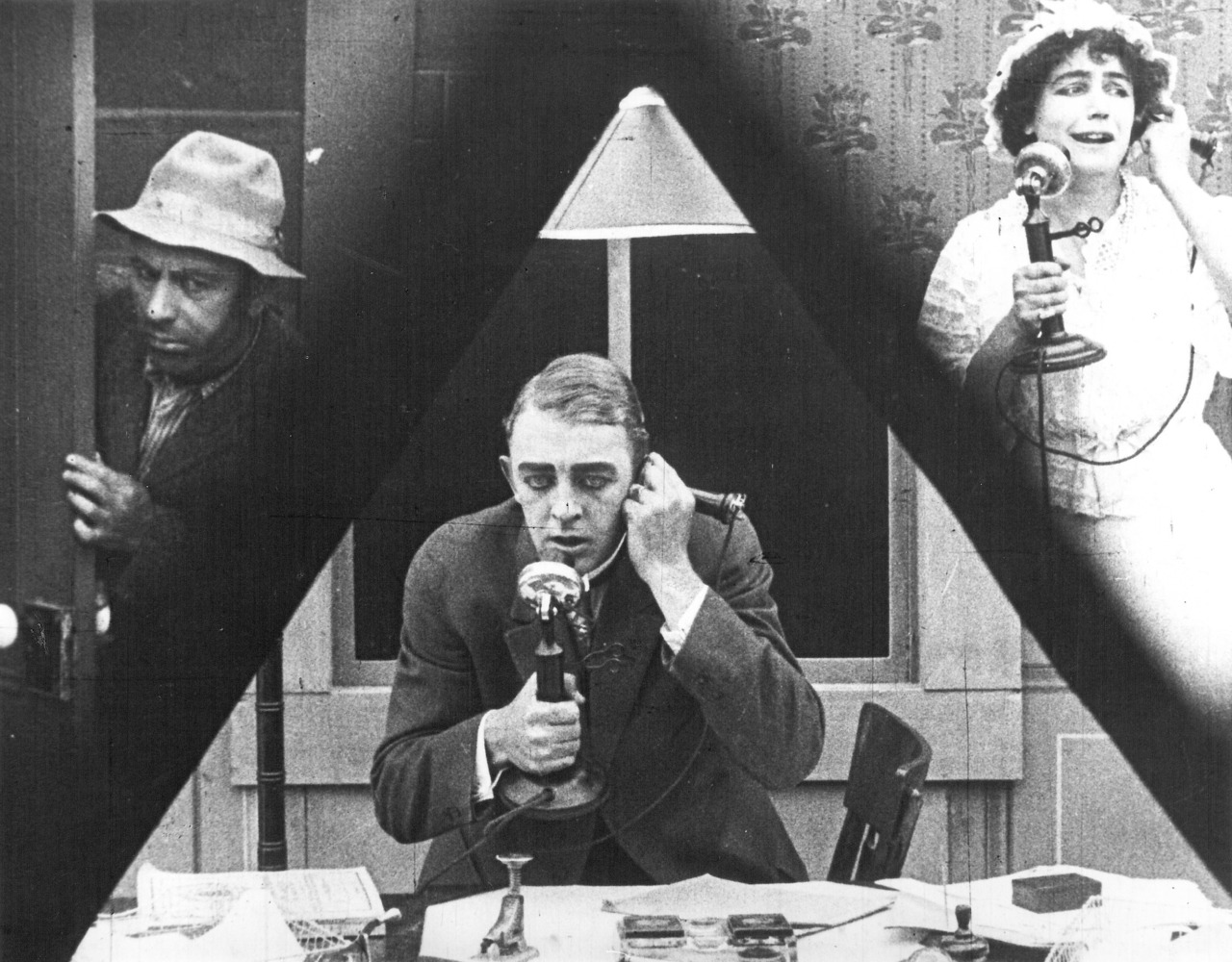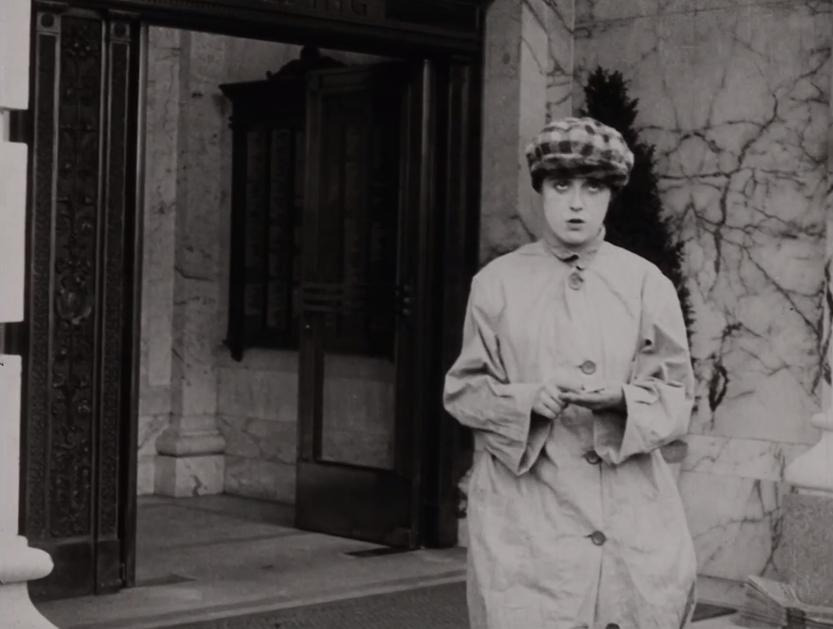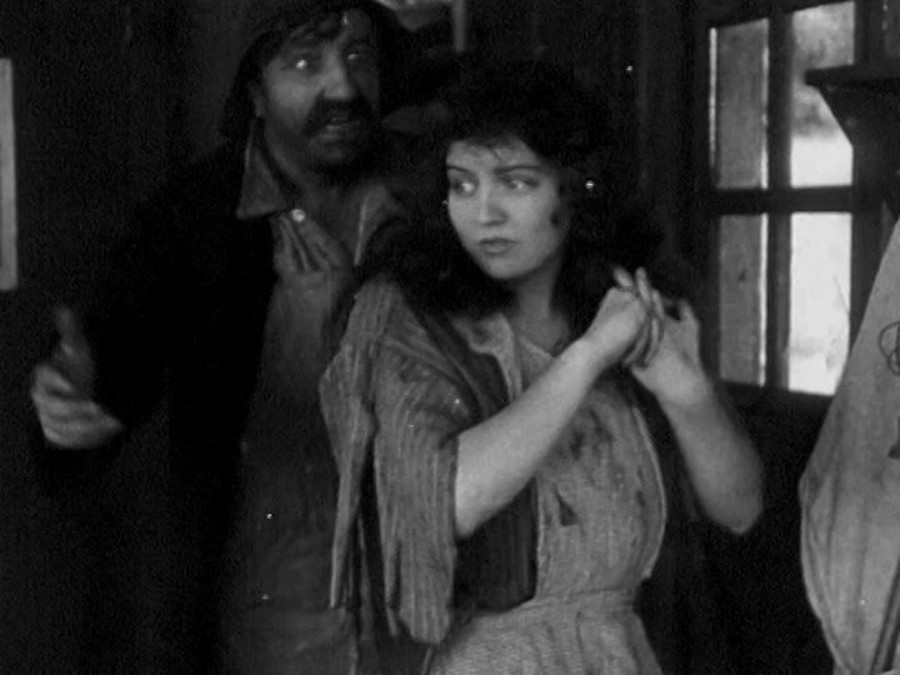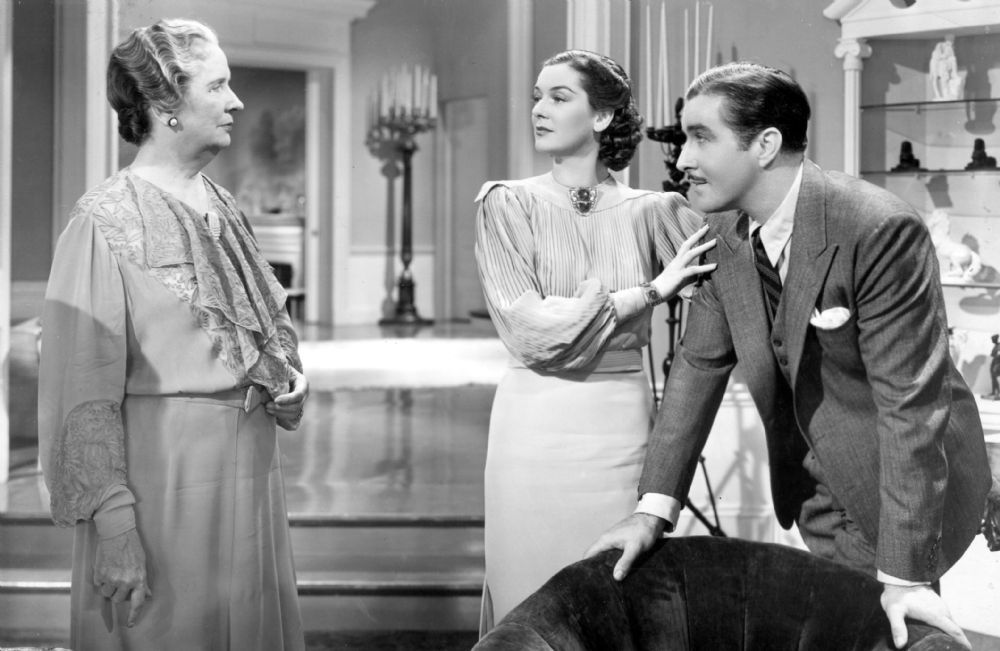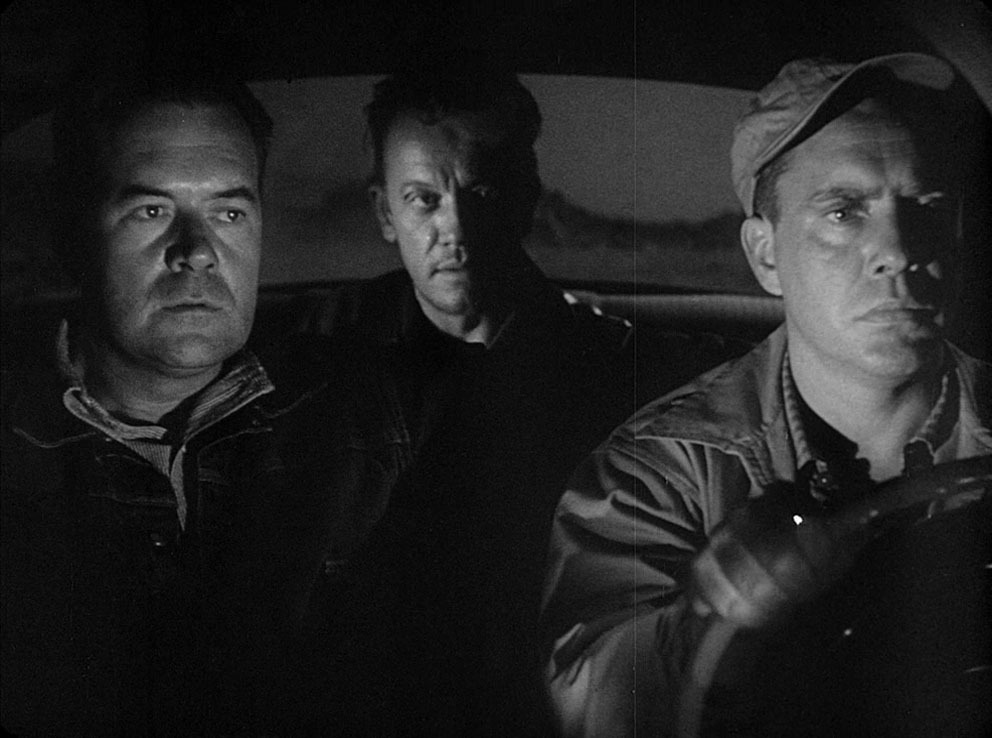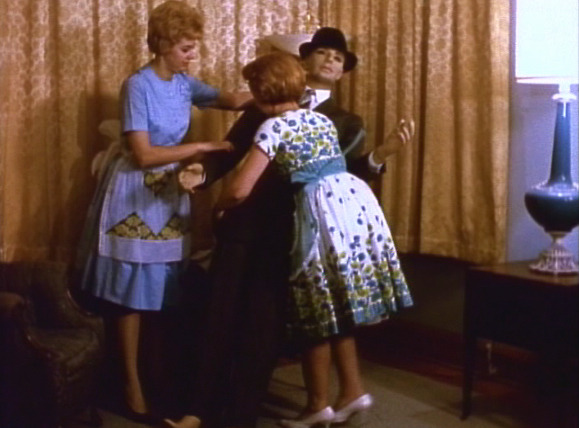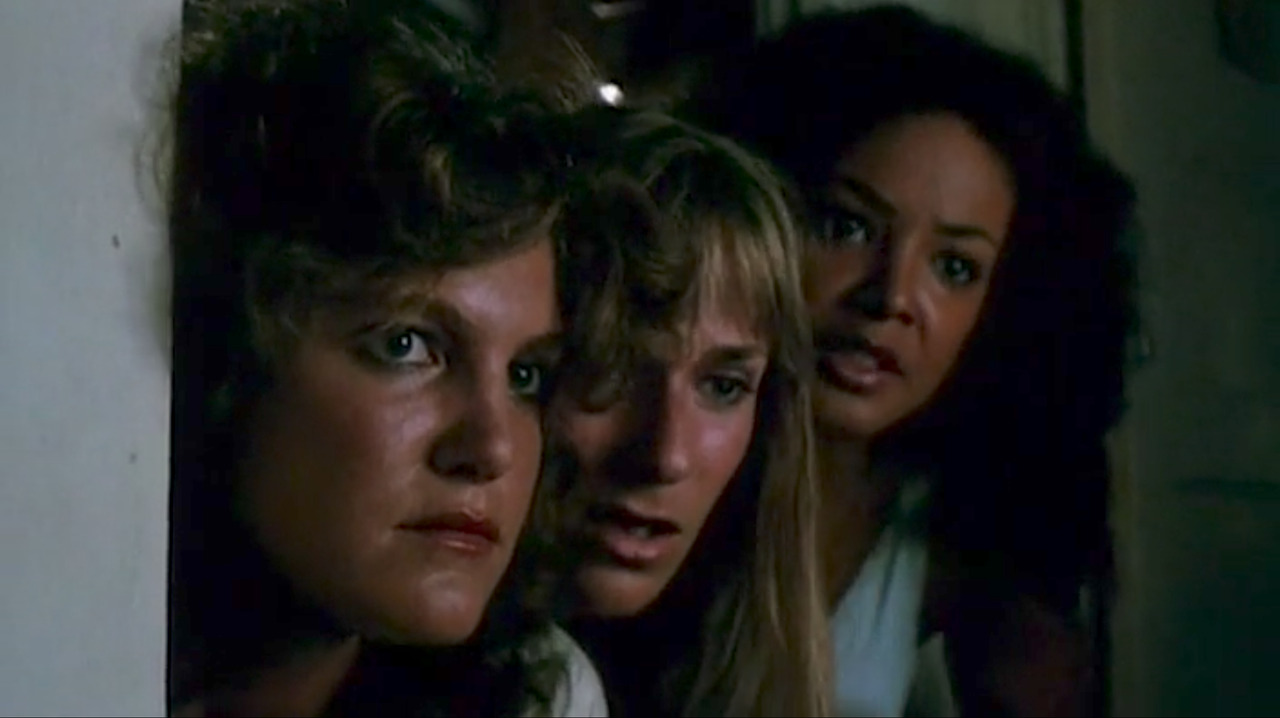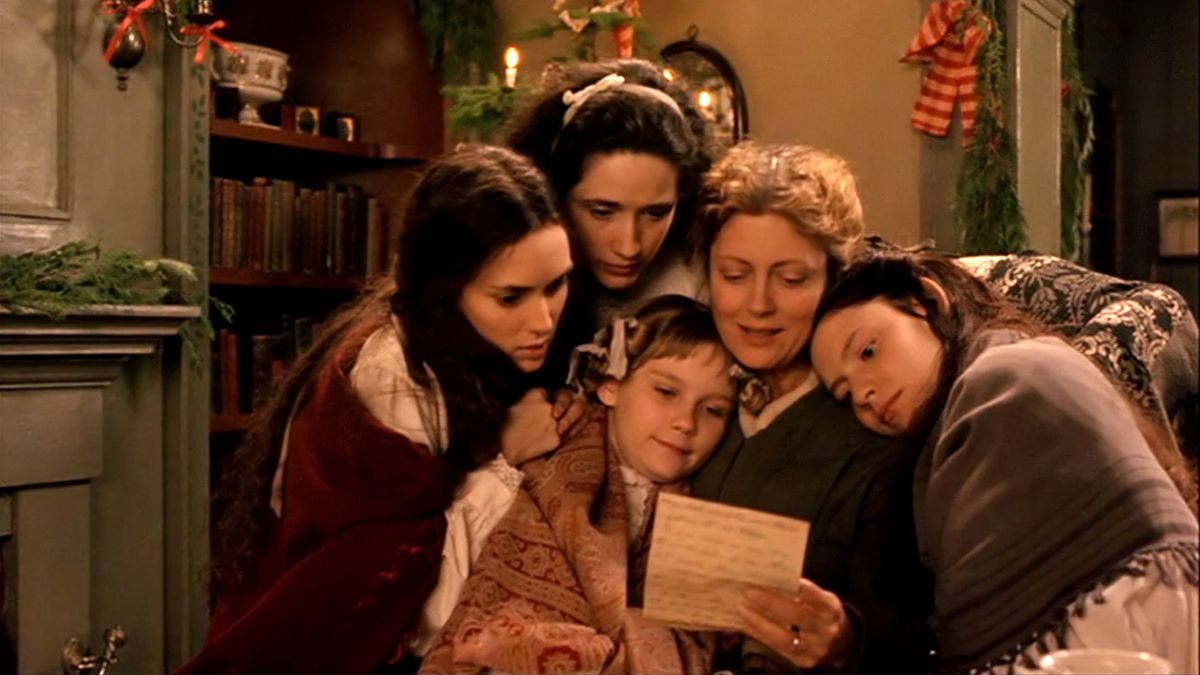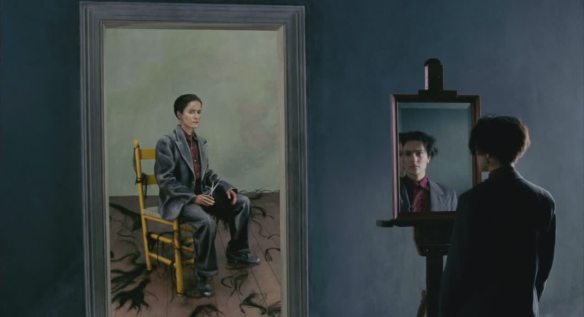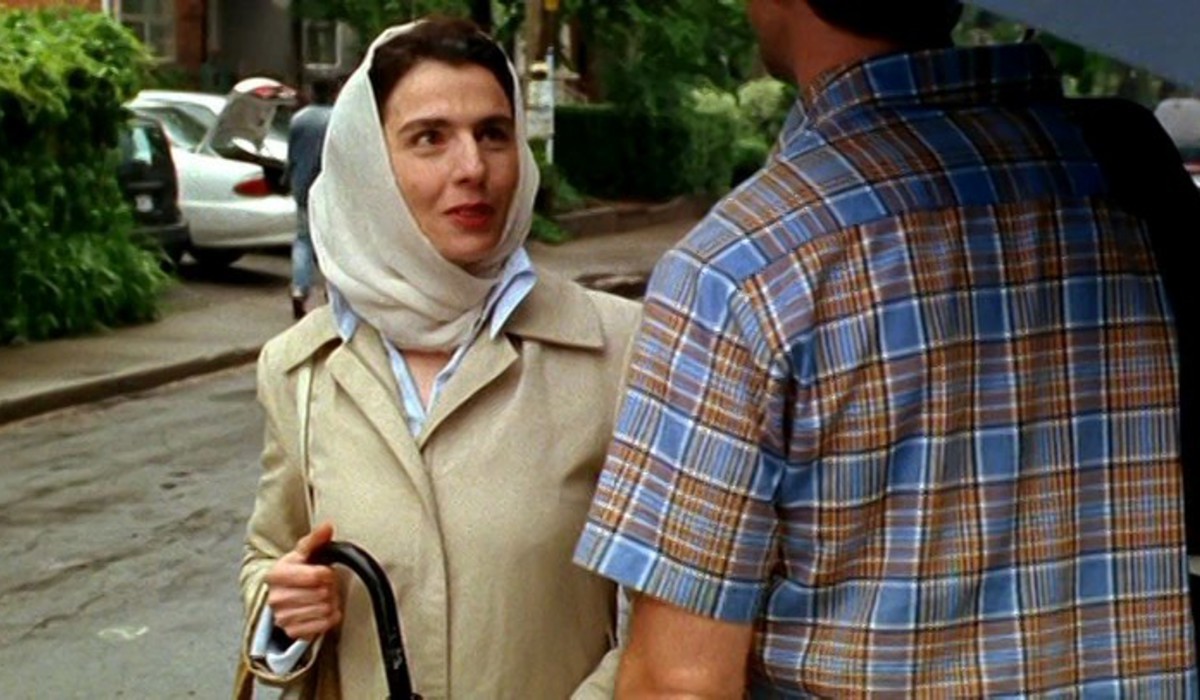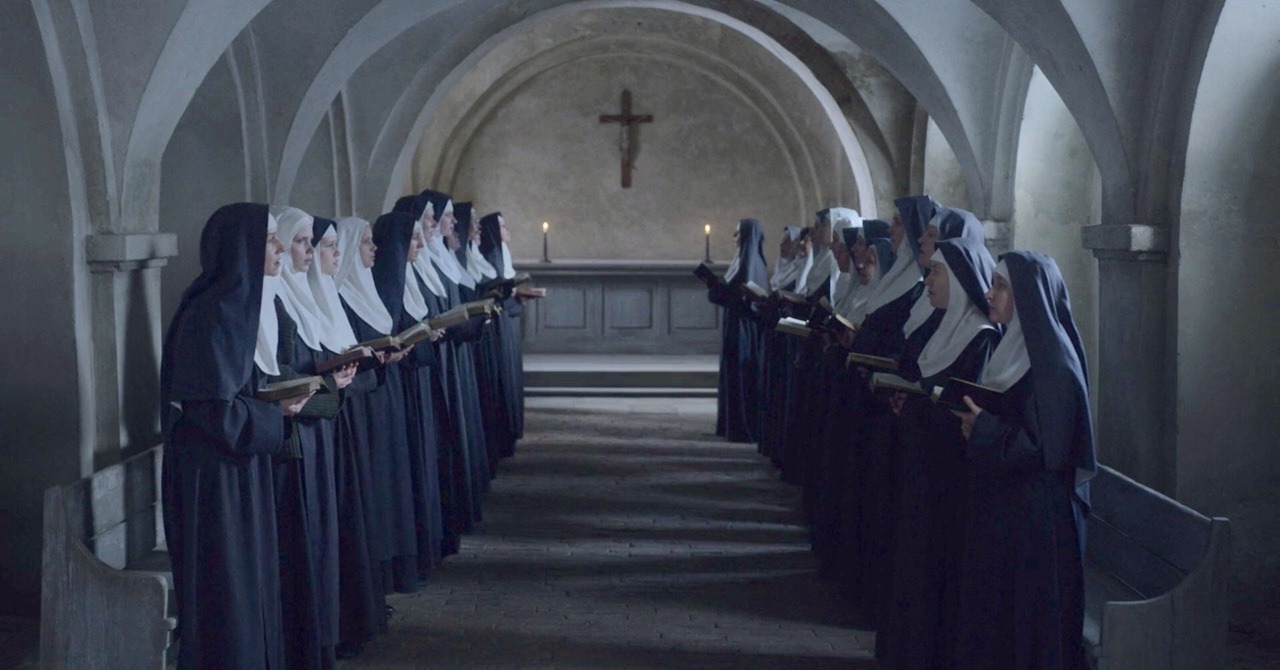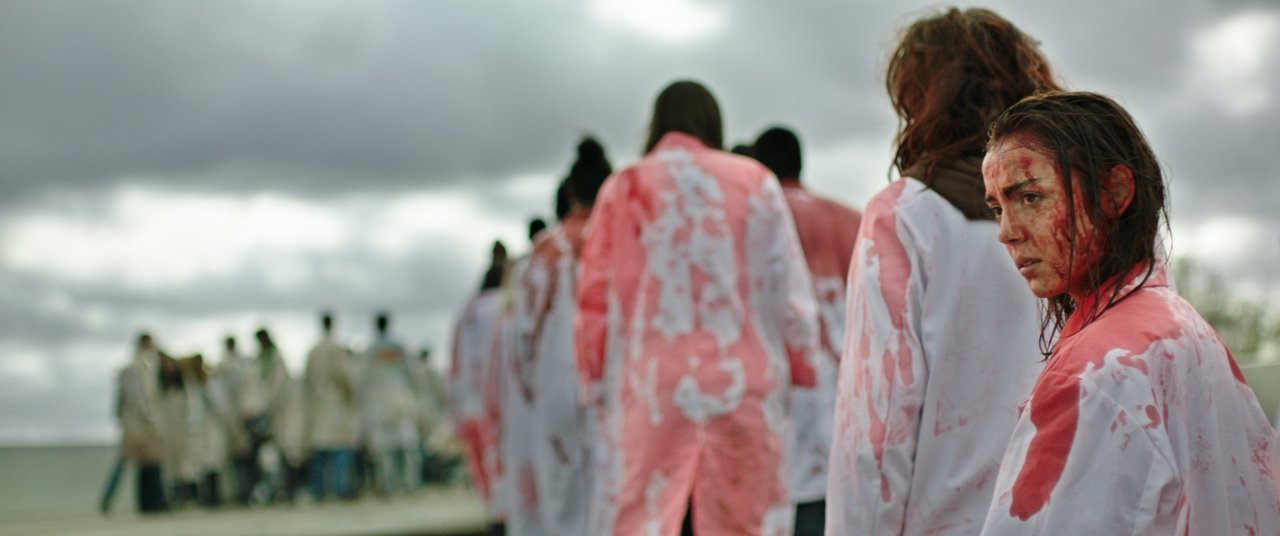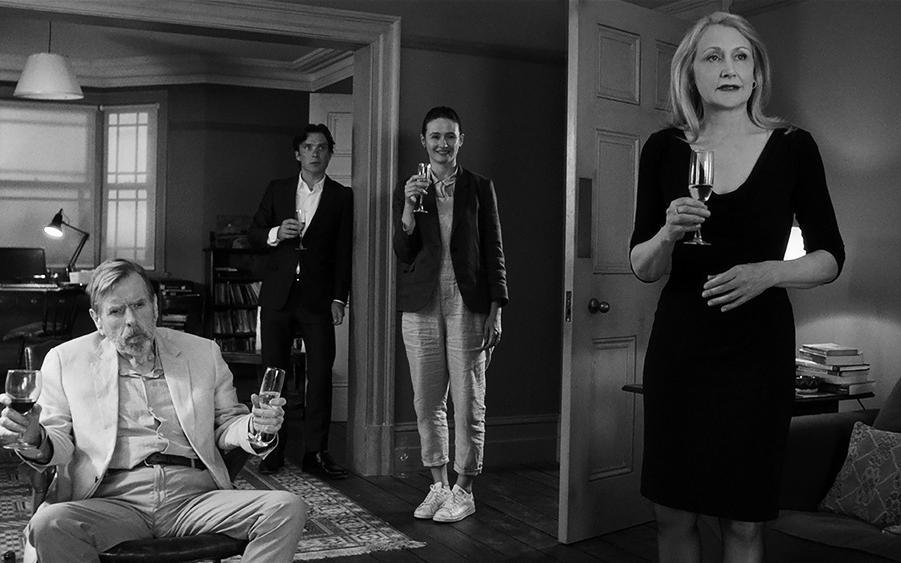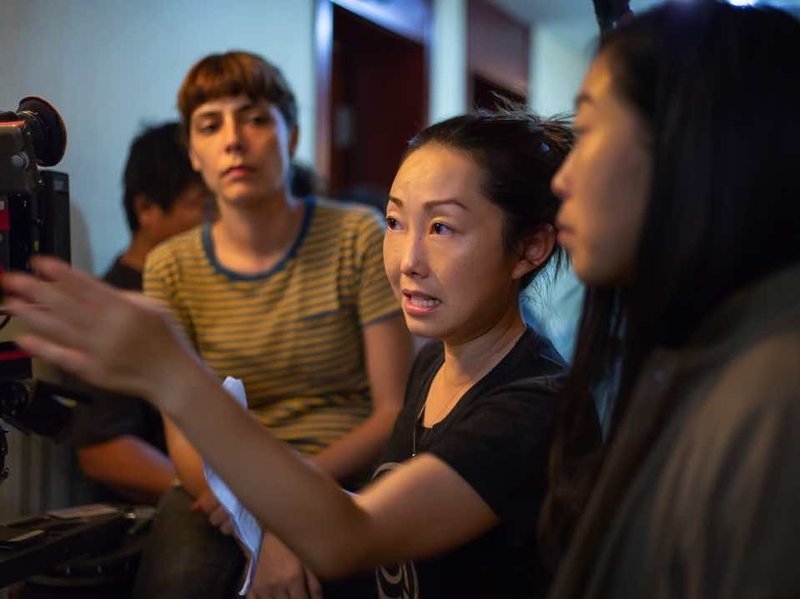
Cinematographer Anna Franquesa Solano, director/screenwriter Lulu Wang and actress Awkwafina on the set of The Farewell, 2018. (Photo: Casi Moss/Courtesy of Big Beach, republished by NPR)
Here are twenty new movies due to be released in theaters or via other viewing platforms this July, all of which have been directed and/or photographed by women. These titles are sure to intrigue cinephiles and also provoke meaningful discussions on the film world, as well as the world in general.

JULY 4: Oh! Baby (dir. B.V. Nandini Reddy) – Galaxy Theatres synopsis: “A 70-year-old woman (Lakshmi) turns into her 24-year-old self (Samantha Ruth Prabhu) after being photographed in a studio.”
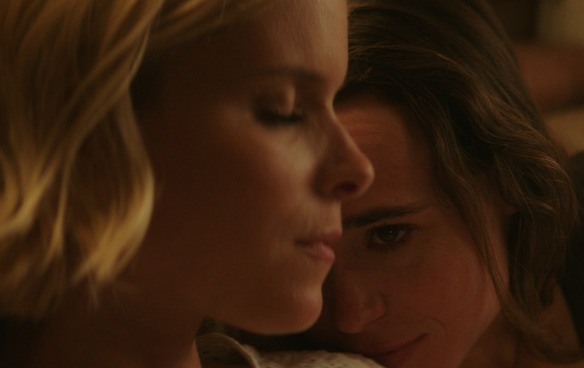
JULY 5 (in theaters & on digital/VOD): My Days of Mercy (dir. Tali Shalom-Ezer) – Variety’s Toronto International Film Festival review by Dennis Harvey: “A lesbian romance stretching across bitterly divided death-penalty political lines might sound like a recipe for case-pleading dramatic contrivance, but it’s handled with plausible restraint and delicacy in My Days of Mercy, Israeli director Tali Shalom-Ezer’s first U.S. feature.
“Her acclaimed prior 2015 Princess was a disturbingly intimate portrait of unconventional domesticity edging toward quasi-incestuous abuse. It showed high promise, but there’s still a sense of surprise in how well Shalom-Ezer navigates the very different focus and milieu of Joe Barton’s astute screenplay here. Produced as a vehicle for co-starring friends Ellen Page and Kate Mara, Mercy serves them both well, with critical support likely to help the film find an audience despite its challenging themes.
“The Moro family are first glimpsed on what appears to be a vacation, but in fact is something very different: driving their ancient RV to yet another vigil amongst death-penalty foes (and advocates) outside a prison where another convict is about to be executed. Maternal eldest sibling Martha (Amy Seimetz) is the literal and figurative driving force behind these road trips, with 22-year-old Lucy (Ellen Page) a more ambivalent participant, while grade-school-aged brother Ben (Charlie Shotwell) is too young to have much opinion one way or the other. It takes a while for us to suss out their mutual dynamics, not to mention what got them here — the longtime Death Row residency of their father Simon (Elias Koteas), who was found guilty of murdering their mother eight years ago but maintains his innocence.
“There’s an uneasy co-existence at such events between the ‘enemy’ camps, with little interaction if little overt hostility. So it seems like an invisible line-crossing when nonconformist Lucy finds herself making friends with cheerleader-ish Mercy (Mara), who’s on the other side: Her father has agitated for the execution of a mentally disabled man who killed his off-duty longtime police partner. The two young women’s fledgling relationship continues later via online contact between their respective Ohio and Illinois homes, then jumps from flirtation to romance when Lucy commandeers the RV to rendezvous at another gathering.
“But there remains something furtive and dangerous about their connection. Shalom-Ezer limns several fairly explicit sex scenes with the tension of possibly getting ‘caught.’ it’s not just that the protagonists are semi-defying their families by seeing one another. Their liaison also reveals how needy small-town outcast Lucy is, while Mercy reveals suspiciously little about her own circumstances. Moreover, the latter is in a position to offer legal advice that might finally exonerate the Moro’s incarcerated dad — or, conversely, might cement his guilt. All these factors, plus the presence of Brian Geraghty as a lawyer who’s become involved with Martha over the long course of Simon’s appeals, exacerbate imbalances in a fragile household that’s been in a kind of suspended animation since one parent died and another ‘went away.’
“Barton finds drama not just in individual characters, but in the variably grieving and/or angry cultures that grow around a hot-button political issue like the death penalty. Wisely, his script defers from stacking the deck in one direction or another, thought the sharply observed dialogue does make room for arguments on both sides. More central, however, are the non-polemical rhythms of Midwestern life, which are captured with assured detail by Shalom-Ezer and her major below-the-line collaborators, notably production designer Maya Sigel.
“Page, in the middle of a very busy year (beyond this premiere and The Cured, TIFF venues are wallpapered with posters for the imminent Flatliners remake), gives one of her best performances in a tailor-made role. Mara is fine as a character whose elusiveness ultimately transcends plot device. Seimetz excels as a woman who’s held it together under duress for so long she may no longer know how to live in a state of non-crisis. Supporting roles are very well cast.”
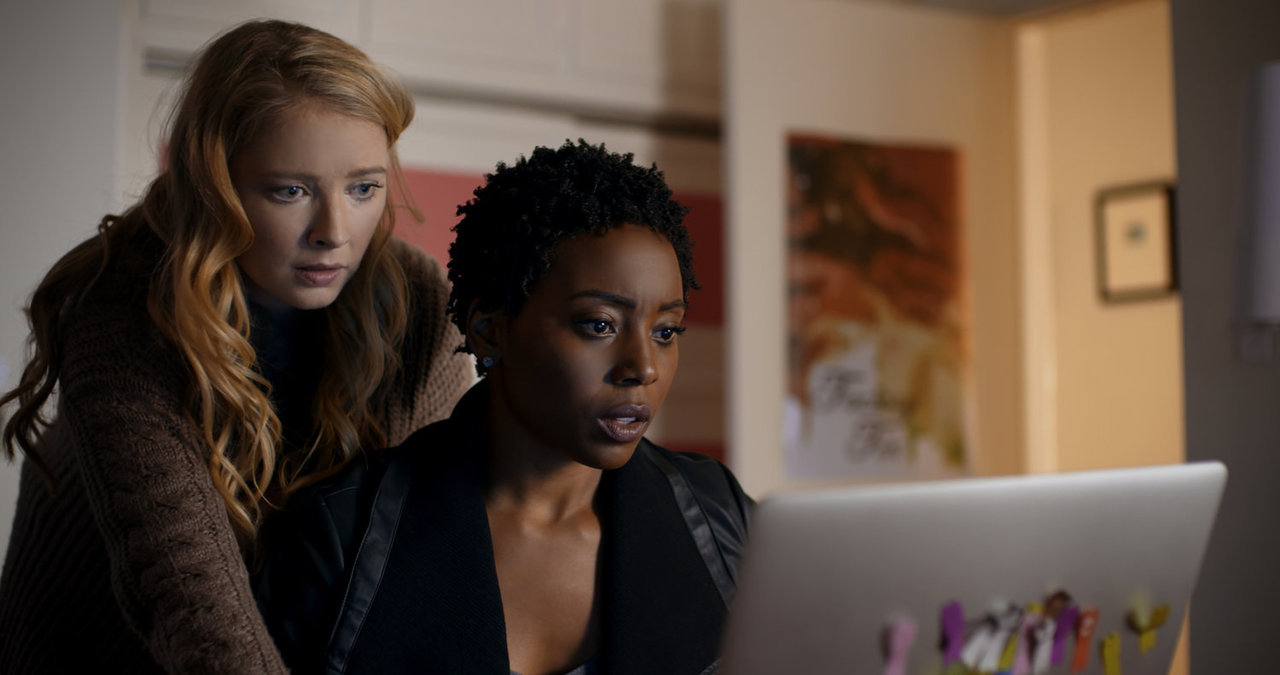
JULY 5: Skin in the Game (dir. Adisa) (DP: Kira Kelly) – Kandoo Films synopsis: “Abducted off the sidewalk of suburban America, fifteen year old Dani (Sammi Hanratty) finds herself submerged in a horrific human trafficking ring run by Eve (Angélica Celaya). With no initial assistance from the police, Dani’s mother (Elisabeth Harnois) and an ex-prostitute (Erica Ash) take to the streets in an effort to find her before it is too late. First time director Adisa takes viewers on an intense journey of a horrific underground world and introduces us to characters from both sides of the street, some who survive … and others who are not so lucky.”

JULY 9 (airing on Showtime at 7:30 PM EST), JULY 12 (in theaters): General Magic (dirs. Sarah Kerruish and Matt Maude) – Showtime synopsis: “The ideas that dominate the tech industry and our day to day lives were born at a secretive Silicon Valley start-up called ‘General Magic,’ which spun out of Apple in 1990 to create the first handheld personal communicator (or ‘smartphone’). The film combines rare archival footage with powerful honesty from the ‘Magicians’ today, reflecting on the most influential Silicon Valley Company no one has ever heard of. Featuring legendary members of the original Macintosh team, along with the creators of the iPod, iPhone, Android and eBay.”
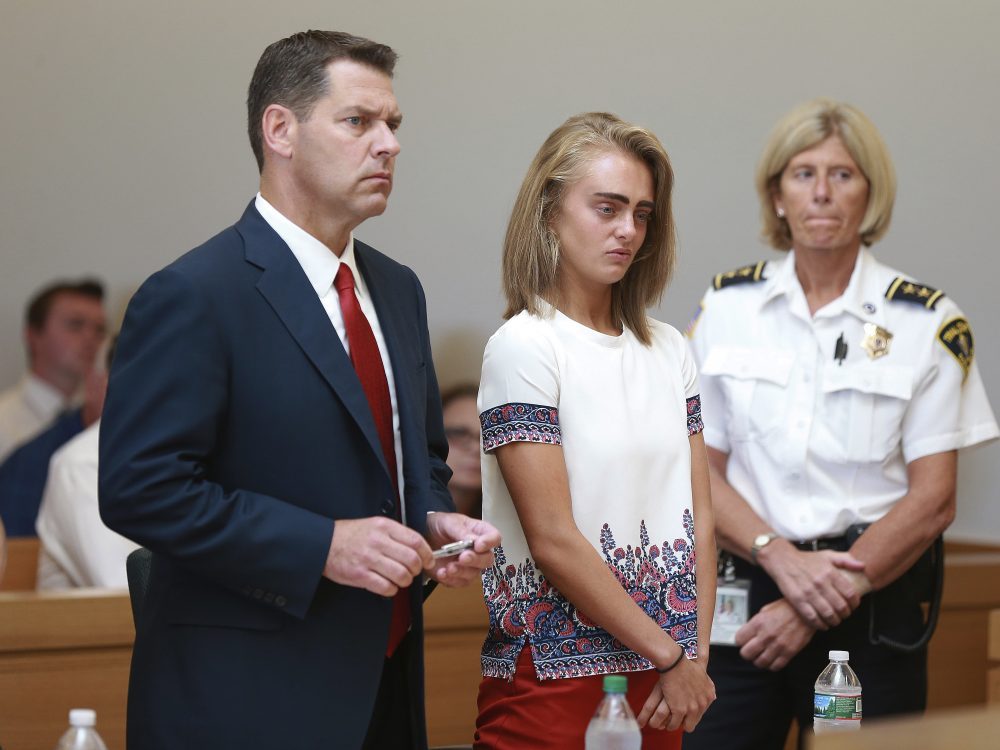
JULY 9 and 10 (airing on HBO, 8:00 PM EST on both nights): I Love You, Now Die: The Commonwealth v. Michelle Carter (dir. Erin Lee Carr) – HBO synopsis: “In July 2014, 18-year-old Conrad Roy died by suicide in his car at a parking lot in Fairhaven, Mass. Police soon discovered a series of alarming text messages from his girlfriend, 17-year-old Michelle Carter, that seemed to encourage him to kill himself. This discovery sparked sensational headlines nationwide, leading to a trial that raised difficult questions about technology, social media and mental health, while asking if one person can be held responsible for the suicide of another.
“In 2012, teens Michelle Carter and Conrad Roy fell in love. They lived hours apart and met in person no more than five times, but exchanged thousands of texts over a two-year period. After Roy was found dead in his car in July 2014, what appeared to be a standard case of suicide by carbon-monoxide intoxication took a shocking turn when investigators discovered alarming text messages on his phone. Carter, 17 at the time, had urged Roy to kill himself, even after he had second thoughts and removed himself from his car.
“Directed by Erin Lee Carr (HBO’s At the Heart of Gold: Inside the USA Gymnastics Scandal and Mommy Dead and Dearest) I Love You, Now Die explores the complicated relationship between Carter and Roy, drawing on some of the thousands of texts they exchanged over two years to chronicle their courtship and its tragic consequences. Featuring unprecedented access to the families, friends and communities that were forever changed by this unusual case, the documentary explores the changing nature of the justice system today, following a story that has wider implications for society at large, both online and in real life. The film presents a well-rounded look at a bizarre tale that was a deadly convergence of mental illness, loneliness, pop culture and technology.
“In July 2017, Michelle Carter was charged with involuntary manslaughter in the suicide of Roy. In August 2017, she was found guilty and began her 15-month prison sentence in February 2019, following a failed appeal.
“I Love You, Now Die includes footage from Michelle Carter’s trial, where the filmmakers had the only camera allowed in court and supplied the pool camera for this historic case. It also features interviews with key individuals in the story, including: Conrad Roy’s immediate family; Joseph Cataldo, Michelle Carter’s defense attorney; Dr. Peter Breggin, an expert witness for the defense; police detectives; and journalists who covered the case extensively.”
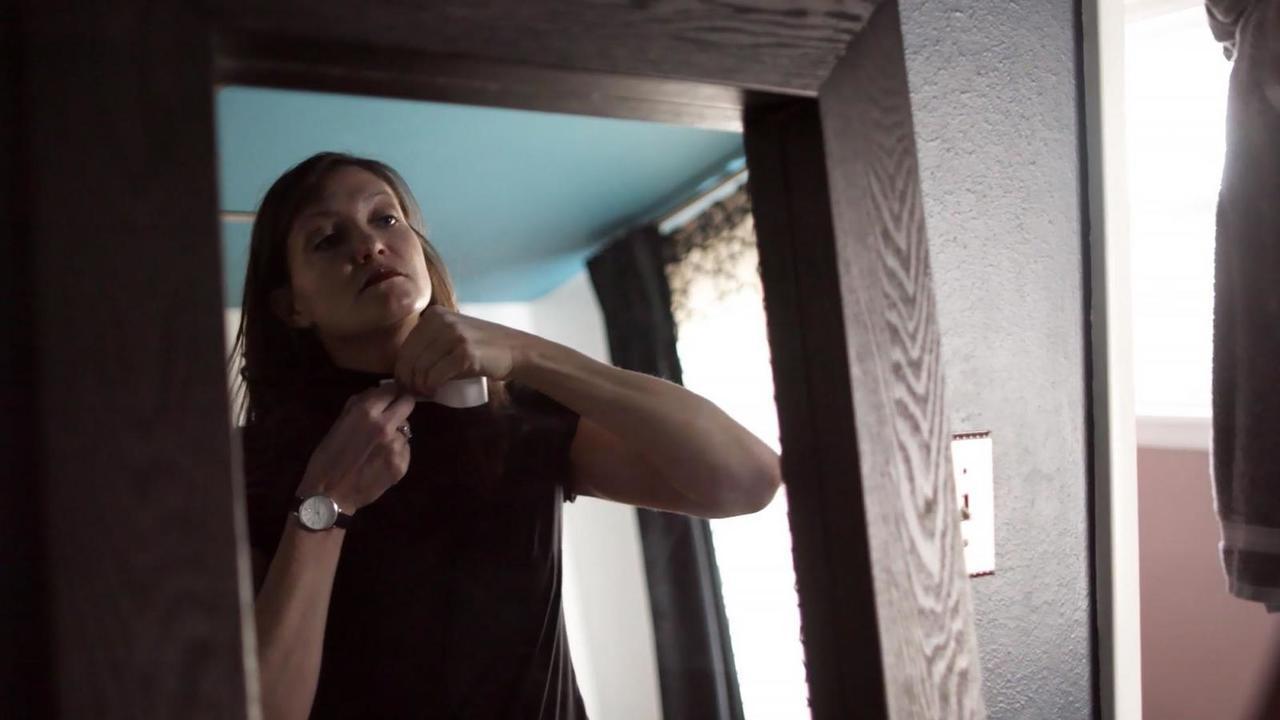
JULY 12: American Heretics: The Politics of the Gospel (dir. Jeanine Isabel Butler) – Synopsis from the film’s official website: “At what other point in our history has the line between church and state become so tangled and polarizing?
“We’ve entered a time where the power of negative partisanship has sorted us along lines of race and religion. And what that means, according to Dr. Robert Jones, head of the Public Religion Research Institute ‘is that the two parties have exploited race and religion, two of the most visceral things you can think of in terms of the human experience, and they’ve locked them in partisan identities.’
“American Heretics: The Politics of the Gospel takes audiences into the buckle of Bible belt where a group of defiant ministers, congregations, and community leaders are challenging deeply rooted fundamentalist Christian doctrine in favor of a Gospel of Inclusion. Labeled as ‘heretics’ for their beliefs and actions, they refuse to wield their faith as a sword sharpened by literal interpretations of the Bible. Especially those fundamentalist Christian interpretations that continue to justify nationalism and hack away at landmark civil rights protections for women, minorities, immigrants, and the LGBTQ communities.
“This poignant story challenges what we think we know about the Christian heartland by offering a rare personal glimpse into the contentious and often misunderstood history of religion, race, and politics in America. These Heretics are still interested in saving you from hell, but’s the earthly one, where poverty, discrimination and nationalism oppresses ‘…those who are the least among us.'”
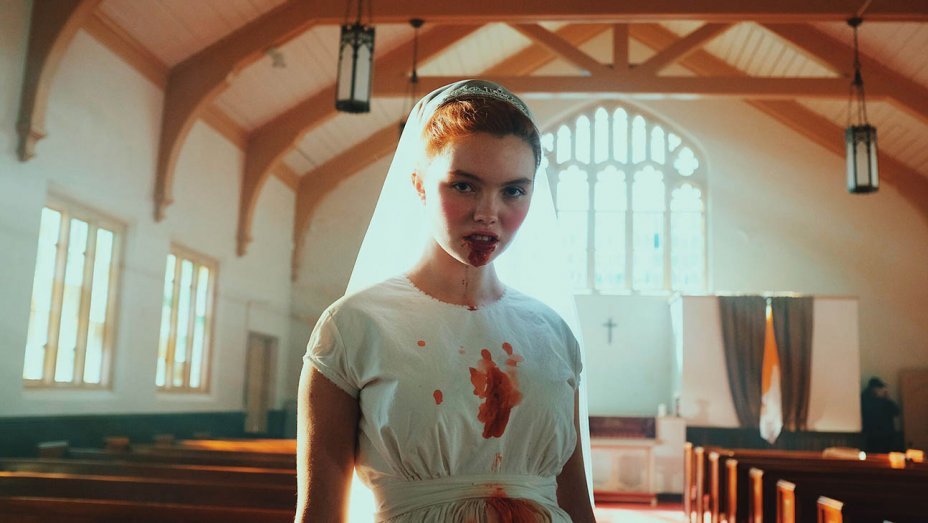
JULY 12 (in theaters & on VOD): Darlin’ (dir. Pollyanna McIntosh) (DP: Halyna Hutchins) – SXSW synopsis: “Found at a Catholic hospital filthy and ferocious, feral teenager Darlin’ is whisked off to a care home run by The Bishop and his obedient nuns where she is to be tamed into a ‘good girl.’ However, Darlin’ holds a secret darker than the ‘sins’ she is threatened with, and she is not traveling alone. The Woman, equally fierce and feral, who raised her is ever present and is determined to come for her no matter who tries to step in her way. Continuing the twistedly vicious adventure of Lucky McKee’s cult hit The Woman, Darlin’ sees standout star Pollyanna McIntosh both in front of and behind the camera, expertly commanding an all-consuming feast on the senses and sensibility in equal measure.”
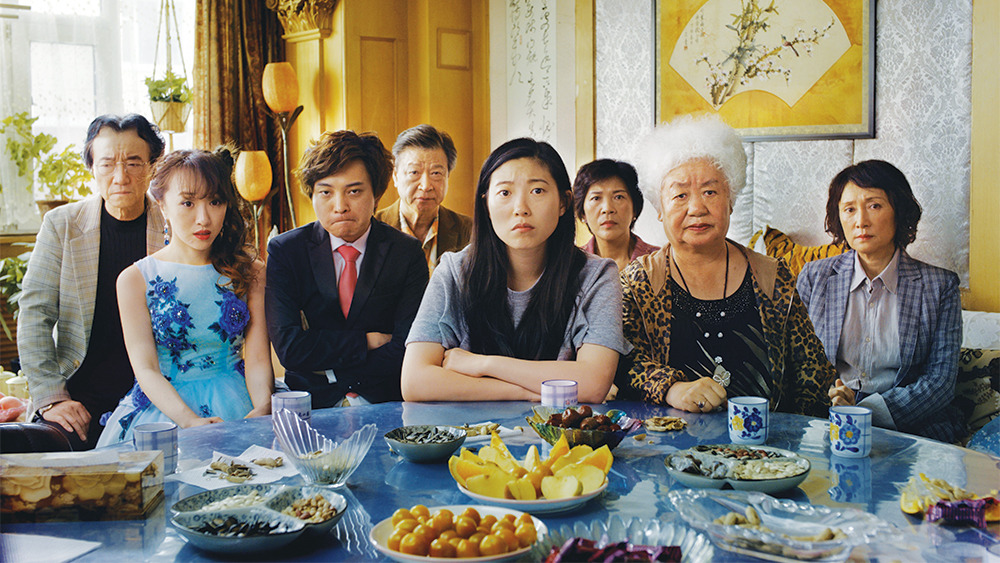
JULY 12: The Farewell (dir. Lulu Wang) (DP: Anna Franquesa Solano) – BAM synopsis: “Based, we are informed, ‘on an actual lie,’ Lulu Wang’s wonderfully warm, bittersweet look at the intricacies of family dynamics features a bravura breakout performance from Awkwafina as a writer living in New York who travels back to her hometown in China for a wedding celebration. The lie? The wedding is really just a pretext for family members to say goodbye to their beloved grandmother who, as everyone but the old woman herself knows, has been diagnosed with terminal cancer. What plays out is a by turns gently humorous and achingly tender reflection on home, heritage, and the ways in which family bonds can stretch across cultures, distance, and generations.”

JULY 12 (in theaters & on VOD): Firecrackers (dir. Jasmin Mozaffari) (DP: Catherine Lutes) – Vancouver International Film Festival synopsis: “Teens Lou (Michaela Kurimsky) and Chantal (Karena Evans) have only one thing on their minds: getting the hell out of their rural Ontario backwater and never looking back. Scouring their stifling surroundings for any source of income, these resilient girls butt heads with a place and a populace that threaten to rob them of their free spirits. But Lou and Chantal are equally threatened by their own combustibility and could very well precipitate their own ruin.
“A tribute to youthful ambition and ideals, Jasmin Mozaffari’s feature debut offers us the chance to feel as rebellious, as animated and as alive as its protagonists. Set against a striking backdrop of big skies and open spaces and vibrantly shot by Catherine Lutes, Firecrackers hinges on raging emotions and devastating heartbreaks. It’s also a potent reminder that opportunities in life are often precarious and fleeting. None of us have a moment to waste.”
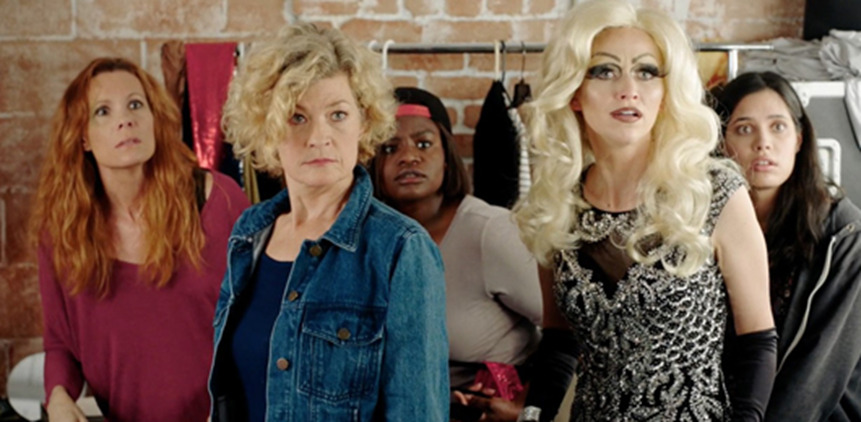
JULY 12 (in theaters & on VOD): Miss Arizona (dir. Autumn McAlpin) – Synopsis from the film’s official website: “Rose Raynes (Johanna Braddy) was crowned Miss Arizona – 15 years ago. Now a bored housewife trapped in a less-than-ideal marriage, and mourning the independence of her 10-year-old son, Rose accepts an invitation to teach a life skills class at a women’s shelter. Digging out the relics of her pageant queen past, Rose attempts to share her ‘Making Your Presence a Present’ platform speech with a room of four disinterested women dodging abusive exes. But when trouble shows up at the shelter, what the women really need is for Rose’s shiny SUV to get them out of Dodge. The five embark on an all-night adventure through L.A.’s darkest streets and wildest drag club as the women fight to survive, and in so doing, discover what they need most. This one’s an anthem for any woman who’s ever been told to sit still and look pretty. This one’s for the marginalized. This one’s for the girls.”

JULY 12: The Sweet Requiem (dirs. Ritu Sarin and Tenzing Sonam) – Toronto International Film Festival synopsis by Cameron Bailey: “This bold new work from directors Ritu Sarin and Tenzing Sonam (Dreaming Lhasa) is a tale of tragedy, retribution, and courage. Shifting between a present-day struggle to overcome trauma and flashbacks to a harrowing trek through the Himalayas, The Sweet Requiem offers an unforgettable reflection on the refugee crisis in a part of the world too rarely reported on.
“Dolkar (Tenzin Dolker) is a 26-year-old living in exile in Delhi. An unexpected encounter with a figure from her past sets off a flurry of memories she had long repressed regarding the journey that brought her here. Dolkar was only eight when she and her father left their Tibetan home in a desperate attempt to start anew in a safer land. As memories of what became a disastrous expedition take shape, Dolkar resolves to confront the man she believes responsible.
“The Sweet Requiem authentically captures the life-and-death stakes of the real-life escape across the border on which it was based, but the film’s deeper insights emerge from the complex and shifting allegiances Dolkar must navigate in exile. Sarin and Sonam, who is the child of Tibetan refugees, draw on their knowledge and perspective to take us inside that experience. This latest work is their most powerful and compassionate yet, contending with the sinister shadows of the past while envisioning a better future.”
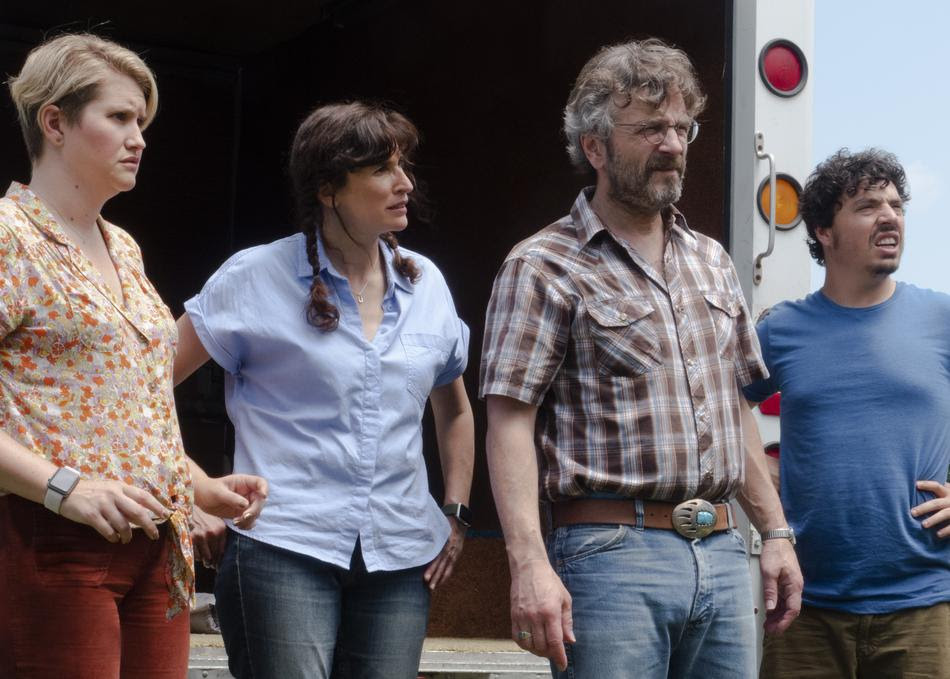
JULY 12 (in theaters), JULY 19 (on VOD): Sword of Trust (dir. Lynn Shelton) – IFC Center synopsis: “Mel (Marc Maron) is a cantankerous pawnshop owner in Alabama who spends most of his time swindling customers while trying and failing to get his man-child employee Nathaniel (Jon Bass) to do any work. When Cynthia (Jillian Bell) and her wife Mary (Michaela Watkins) try to hawk a Civil War-era sword inherited from Cynthia’s recently deceased grandfather, he tries to get the better of them. The sword, however, comes with a convoluted report from Cynthia’s grandfather claiming the relic to be proof the South actually won the war. It isn’t long before the coveted ‘prover item’ draws the attention of overzealous conspiracy theorists and the two duos have to join forces in order to sell the sword to the highest bidder. The journey that ensues takes the ragtag bunch on a tour through the deep South and the minds of the local fanatics who inhabit it. Created from the raw talent of its cast and infused with a lot of heart and laughs, Sword of Trust takes a stab at uncovering emotional truths through moments of hilarity and hits right on the mark.”
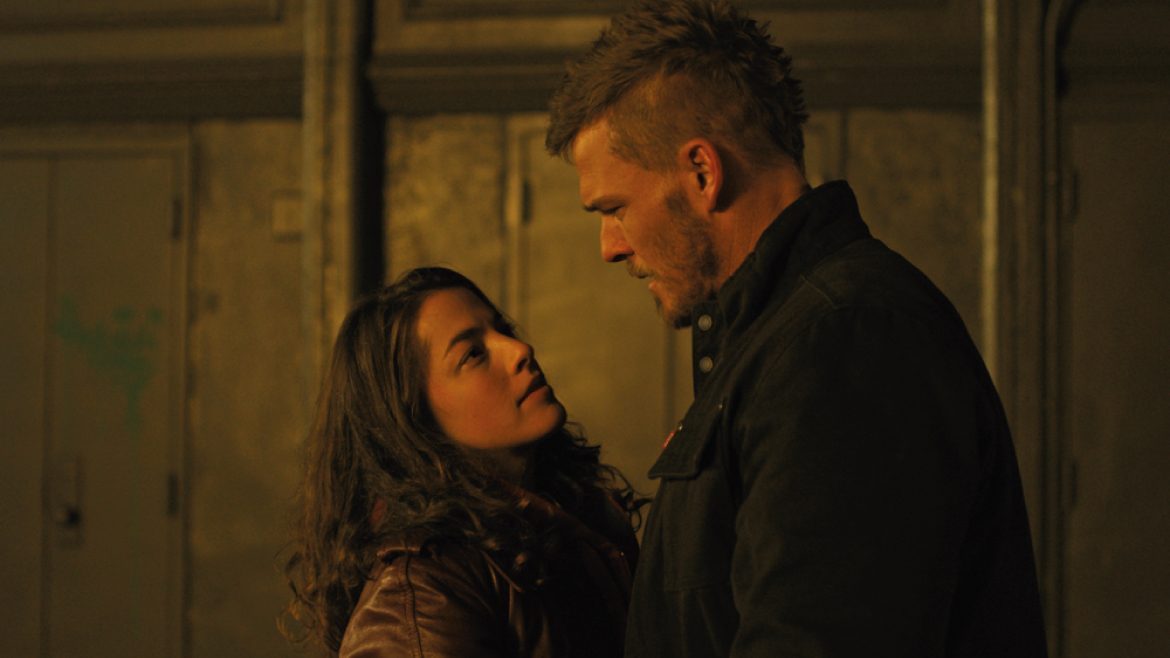
JULY 19 (in theaters & on VOD): Above the Shadows (dir. Claudia Myers) – Hipzee synopsis: “A supernatural tale follows a young woman (Olivia Thirlby) who has faded from the world to the point of becoming invisible. After more than a decade existing in the shadows, Holly meets the one man who can see her, Shayne Blackwell (Alan Ritchson), a disgraced MMA fighter. Holly discovers that it was one of her tabloid photographs that caused his downfall, and that she must restore him to his former glory if she wants to regain a foothold in the world around her. With Shayne, Holly awakens to love but also to the possibility that she may remain invisible forever.”
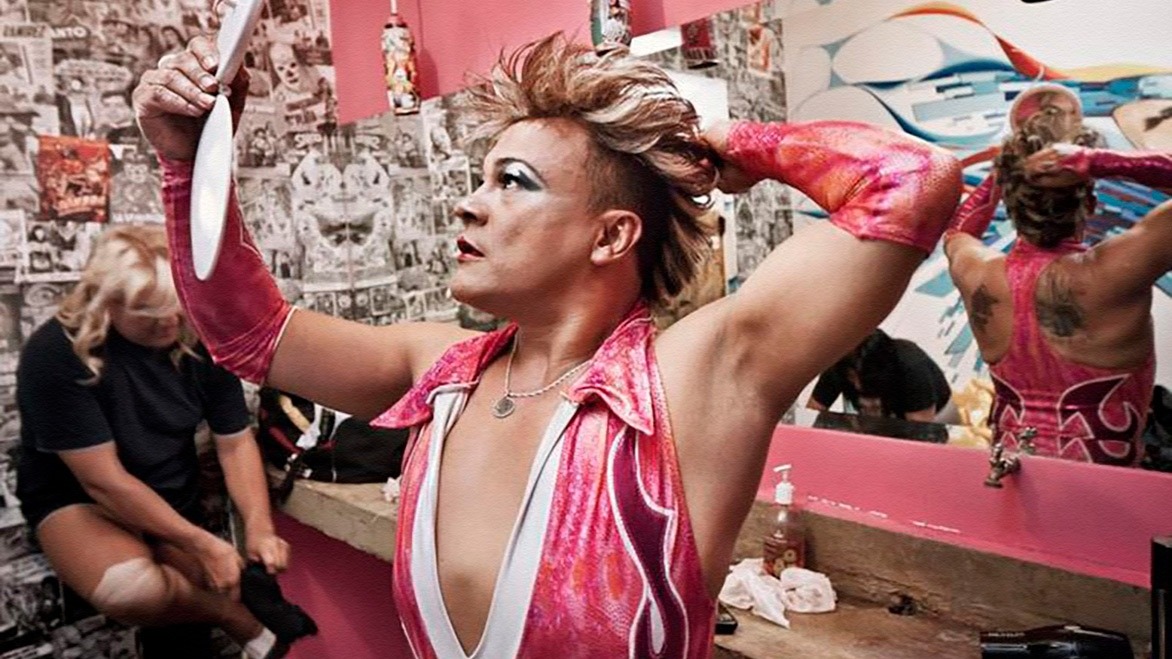
JULY 19: Cassandro the Exotico! (dir./DP: Marie Losier) – Film Movement synopsis: “This stirring feature portrait of lucha libre star Cassandro in his waning years in the ring is less a swan song than a meteor shower rendered in Technicolor. Famed as much for his flamboyant drag and sky-high pompadour as for his show-stopping kicks and flips, Cassandro’s trailblazing ascent as one the industry’s first openly gay wrestlers has resonated internationally for a quarter century. Marie Losier captures the moving, at times humorous, and always colorful dualities of this legendary figure with her talent for forging intimacy with a subject while celebrating his individuality broadly. Cassandro, a prize-winning fighter who reinvented a staunchly macho sport, exudes resilience of all kinds—from the physical power to leave his opponents KOed to an ability to revisit past trauma and cope with the scars of a body pushed to its limits. Cassandro’s story—of an underdog and a queer icon, simultaneously fragile and mighty—is ever more evocative as it unfolds on both sides of the Mexican-American border. Losier’s signature 16mm filming melds tender encounters and larger-than-life fight scenes into a stylish whole that reflects the vivid textures and hues of a dazzling life in sport.”

JULY 19: A Faithful Man (dir. Louis Garrel) (DP: Irina Lubtchansky) – Kino Lorber synopsis: “Nine years after she left him for his best friend, journalist Abel (Louis Garrel) gets back together with his recently widowed old flame Marianne (Laetitia Casta). It seems to be a beautiful new beginning, but soon the hapless Abel finds himself embroiled in all sorts of drama: the come-ons of a wily jeune femme (Lily-Rose Depp), the machinations of Marianne’s morbid young son (Joseph Engel), and some unsavory questions about what exactly happened to his girlfriend’s first husband. Shifting points of view as nimbly as its players switch partners, the sophomore feature from actor/director Louis Garrel—co-written with the legendary Jean-Claude Carrière—is at once a beguiling bedroom farce and a playful inversion of the patriarchal tropes of the French New Wave.”
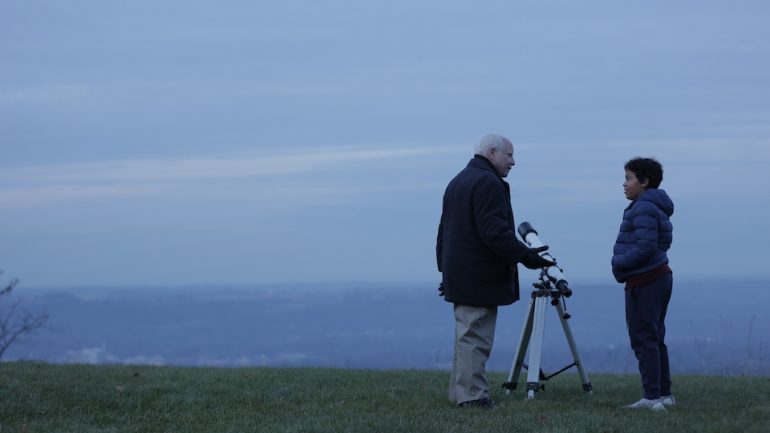
JULY 26 (in theaters & on digital/VOD): Astronaut (dir. Shelagh McLeod) – Edinburgh International Film Festival synopsis: “Richard Dreyfuss is excellent in this moving and enthralling new drama from writer-director Shelagh McLeod. Dreyfuss stars as Angus, a lonely widower whose long-held dream of becoming an astronaut is reignited when a nationwide competition is announced to win a trip to space with an independent space agency. Angus struggles against prejudice towards his age and increasing ill health, and with the help of his dysfunctional family his dream gets closer and closer to becoming reality.”

JULY 26: For Sama (dirs. Waad Al-Khateab and Edward Watts) (DP: Waad Al-Khateab) – Quad Cinema synopsis: “Waad al-Kateab lives through five years of the uprising in Aleppo, Syria as she falls in love, marries, and gives birth to Sama, all while a cataclysmic conflict rises around her. Waad wrestles with an impossible choice– whether or not to flee the city to protect her daughter’s life, when leaving means abandoning the struggle for freedom for which she has already sacrificed so much. A powerful love letter from a young mother to her daughter.”
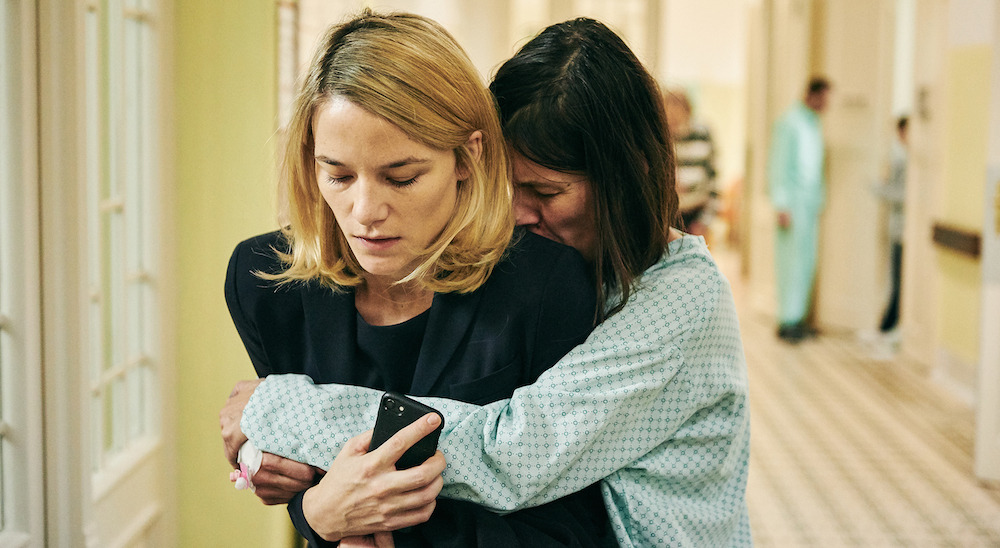
JULY 26: The Ground Beneath My Feet (dir. Marie Kreutzer) (DP: Leena Koppe) – IFC Center synopsis: “Lola manages her personal life with the same ruthless efficiency she uses to succeed in the business world. She keeps her relationship with her boss Elise secret, as well as the existence of her older sister Conny, who has a long history of mental illness. But when she receives the news that Conny has attempted suicide, Lola’s secrets begin to unravel into the workplace. As she tries to do what’s best for her sister without jeopardizing all she’s worked so hard for, Lola slowly finds her own grip on reality slipping away. The new film from Marie Kreutzer is a taut Austrian psychological thriller reminiscent of Repulsion, featuring Valerie Pachner’s Maguey Prize winning performance as Lola.”

JULY 26: Honeyland (dirs. Tamara Kotevska and Ljubomir Stefanov) – IndieWire’s New Directors/New Films (MoMA) review by David Ehrlich: “There’s no evidence Albert Einstein actually said that ‘If the bee disappeared off the face of the Earth, man would only have four years left to live.’ The guy’s name may be synonymous with genius, but he was a theoretical physicist, not an entomologist — just because he was smart doesn’t mean that he could read a hive like a tarot card.
“Of course, it’s easy to appreciate why that quote, however apocryphal, has always been attributed to him: Those words are endowed with the profound wisdom of someone who saw the world more clearly than the rest of us, and recognized the equations that maintained balance in the universe. They speak to the insect’s long history a symbol of stability and discipline (a history that stretches from the ancient Greeks to The Happening), and help to explain the low-grade hysteria that resulted from widespread reports of Colony Collapse Disorder in 2007. They also account for the urgency of Tamara Kotevska and Ljubomir Stefanov’s Honeyland, a bitter and mesmerically beautiful documentary that focuses on a single beekeeper as though our collective future hinges on the fragile relationship between she and her hives.
“But Hatidze Muratova is no ordinary apiarist. In fact, she’s apparently the last of Macedonia’s nomadic beekeepers, although — like every other bit of context in this strictly observational film — that detail is never made explicit. It doesn’t need to be: The more time we spend watching Muratova stick her bare hands into natural stone nests and sing old folk songs to her buzzing swarms, the more obvious it becomes that she’s one-of-a-kind.
“Muratova is at once both older and younger than her 50 or so years first suggest. Her face is weathered and weepy, the skin on her nose appearing to bulb from the countless stings it has presumably endured during her time on the job (again, this is left to our imagination). On the other hand, Muratova flits around the arid countryside with the giddy effervescence of a child, and spars with her half-blind 86-year-old mother like a teenager (their bracingly intimate nighttime chats are shot with the disaffected honesty of a hidden camera, as the bedridden Nazife alternates between joking with her daughter and lamenting that she’s become a burden to her). Her life may appear to be simple, but she is not, and the film never condescends to her the way that well-intentioned documentaries often do to their rustic subjects.
“Kotevska and Stefanov respect Muratova’s interiority, and don’t presume to know what she’s thinking. Their six-person crew lived on the lot beside her for three years, and some of the stray moments they captured — such as the one where Muratova sits inside the cold stone of her unelectrified hut and fusses over the exact color of her hair dye — hint at all the moments they never could. Even towards the end of the film, after you’ve stared at the green and yellow flowers on Muratova’s headscarf for so long that you could draw the floral pattern by memory, there’s still an unknown poetry in the way the cloth flaps in the wind. Even after the beekeeper has reached her breaking point and you know exactly what’s on her mind, there’s something shockingly direct about the way that she puts it into words. When Muratova curses the itinerant Turkish family who begin crowding her area (‘May God burn their livers!’), it stings worse than anything they’ve felt before.
“When Hussein Sam, his wife, and their seven kids drive into Muratova’s neck of the woods in the film’s opening minutes, they bring a powder-keg of a plot conflict along with them. At first, the beekeeper is happy enough for the company, even if the artful camerawork suggests that the outside disturbance runs deeper than Muratova would care to admit (Kotevska and Stefanov display a shrewd ability to see the undercurrents below a given scene, often using shallow focus to express how the Sam family has imbalanced a once-holistic environment). Muratova plays with the younger children, who buzz around the farm with much less purpose than any of her bees. She teaches the curious Hussein about her business, always stressing that she only takes half of the honey that’s produced by each hive, as that ensures the bees will survive and be able to produce more. That sustained harmony is more valuable to Muratova than the extra few Euro she could earn by taking every drop of honey; with her mom unable to walk, she needs to rely on these specific bees for the foreseeable future. They protect her, she protects them, and everyone in turn gets what they need to survive.
“But Hussein Sam doesn’t have time for that. He’s got eight mouths to feed — nine including his own — and he’s just discovered a new way to turn a quick profit. Brusque and impatient, Hussein is poised to be the villain of this story, and his spats with Muratova only seem to cement that status. If only it were a simple matter of good vs. evil, perhaps this story would have a happier ending. Hussein is as responsible for his kids as Muratova is for her mother; he’s desperate to provide for them, even when they take his efforts for granted. ‘Greed’ isn’t the right word for someone in such dire straits, but Hussein needs more than the bees can give him, and he needs it now.
“The relatively modern tools Hussein uses to weigh honey only help to cement the film’s clear microcosm of the tension between sustainability and industrialization; between restraint and a catastrophic lack of foresight. In that sense, watching Honeyland is like looking at the greatest problems of our time through a pinhole, but the film sees the situation with a clarity that gets under your skin and breaks your heart. Far from a scolding, rub-your-nose-in-it depiction of environmental havoc, this is a tender story about the chaos of abandoning the common good. By reflecting Muratova’s relationship with her hives against the social contract that she’s formed with her mother — and that binds Hussein to his family — Kotevska and Stefanov shine a light on what the bees have always told us: They survive by serving each other. And if they ever disappeared completely, people would only have themselves to blame.”

JULY 27 (airing on HBO at 10:00 PM EST): Share (dir. Pippa Bianco) (DP: Ava Berkofsky) – The Playlist’s Sundance Film Festival review by Jason Bailey: “No good news ever follows a text that reads, ‘you ok?’ Mandy (Rhianne Barreto) gets that text a couple of days after a late night she can’t explain; she woke up on her lawn, her mind a blank, and subsequently discovered bruises on her arm and back. She throws up a little the next day, but puts on a happy face for her friends. And then her phone starts blowing up.
“Mandy’s story is told, and well, by writer/director Pippa Bianco in Share, an uncommonly knotty and fiercely intelligent story of assault and blame in the social media age. The ‘you ok?’ text comes because a video and some pictures are circulating, taken during Mandy’s blackout (‘u need to see it,’ her friend texts, ‘it’s bad’). They give her a corner of the puzzle of that evening. She spends the rest of the film trying to piece together what happened – and who, if anyone, she can trust to tell her.
“Among its many achievements, Share uncomfortably captures the specific end-of-the-world misery of high school scandal, and the way that those highly populated spaces can somehow feel like the loneliest in the world. When Mandy’s parents discover the circulating images and video, and (over her objections) bring them to the attention of school administration, she’s victimized further: made to feel like an outsider, sent home from school (so she’s not ‘a distraction’), blamed for the frankly inadequate consequences visited upon those involved.
“Bianco crafts her script as a series of short, often impressionistic scenes, parachuting into conversations late and sneaking out early. It’s filled with hang-out scenes that feel like eavesdropping, both in the ease of dialogue and the messiness of the razor-sharp sound design; she has a terrific ear for the din of these environments, which somehow doesn’t subvert the quiet and stillness at the picture’s center.
“Her supporting characters are well-drawn – particularly Mandy’s parents, who are scared and protective but not villainous, or even (all things considered) overbearing. Among the actors cast as Mandy’s school crew, Lean on Pete star Charlie Plummer stands out with a complicated portrait of residual guilt.
“But this is Barreto’s show. It’s a wonderfully understated performance, as a character most striking in her normalcy – she’s very average, a typical 16-year-old who likes to play ball and hang out with her friends and party a little (and here Bianco dives insightfully into the age-old conundrum of the ‘perfect victim’). Mandy basically just wants this whole ugly business to go away. It is not, of course, that easy.
“Because Bianco is working so close to the ground, Barreto doesn’t get the kind of Big Acting Moments we might expect from this kind of story; there are no shouting confrontations or sobbing breakdowns. Instead, Barreto focuses on small character touches. The way she stands at the top of her stairs, gathering her courage for the first day back at school. How she stares at the floor when she returns to the scene of the crime. The way she lets her thumb hover over the video clip on her phone before pressing play again. And, most heartbreakingly, the way she smiles and says ‘I’m ok,’ and you almost believe her. You want to believe her.”




